"I don't understand why in a poor country like ours internet is so expensive," says Benjamin Yao, an Ivorian teacher, interpreting the hope behind MOOCs, free online courses open to everyone.
“The internet problems are an enormous obstruction which keep us in our position of under-development. If young people had access to these tools, perhaps they would not drown themselves by getting on boats and trying to get to Europe,” says Benjamin Yao, an Ivorian teacher, interpreting the hope behind MOOCs, free online courses open to everyone.
Known by the acronym MOOCs, Massive Open Online Courses aim to provide unlimited global access to university courses via the web. They offer video lectures, scientific experiments and other course components as well as interactive user forums accessible to both students and teachers. Brika is currently taking four MOOCs, including a course on project management from the Central School of Lille, in the north of France.
The dream is to offer better educational prospects to a generation of African students who were born with and have grown up with the internet. This hope was furthered by the recording of the first MOOC in sub-Saharan Africa, in the Ivorian capital Yamoussoukro.
Behind this project initiated by the Swiss Federal Institute of Technology Lausanne (EPFL), lies the story of students who work tirelessly to succeed, despite numerous obstacles. It’s the story of the dream of access to global knowledge at the click of a mouse.
See more of this Story with journalist Katy Romy on swissinfo.
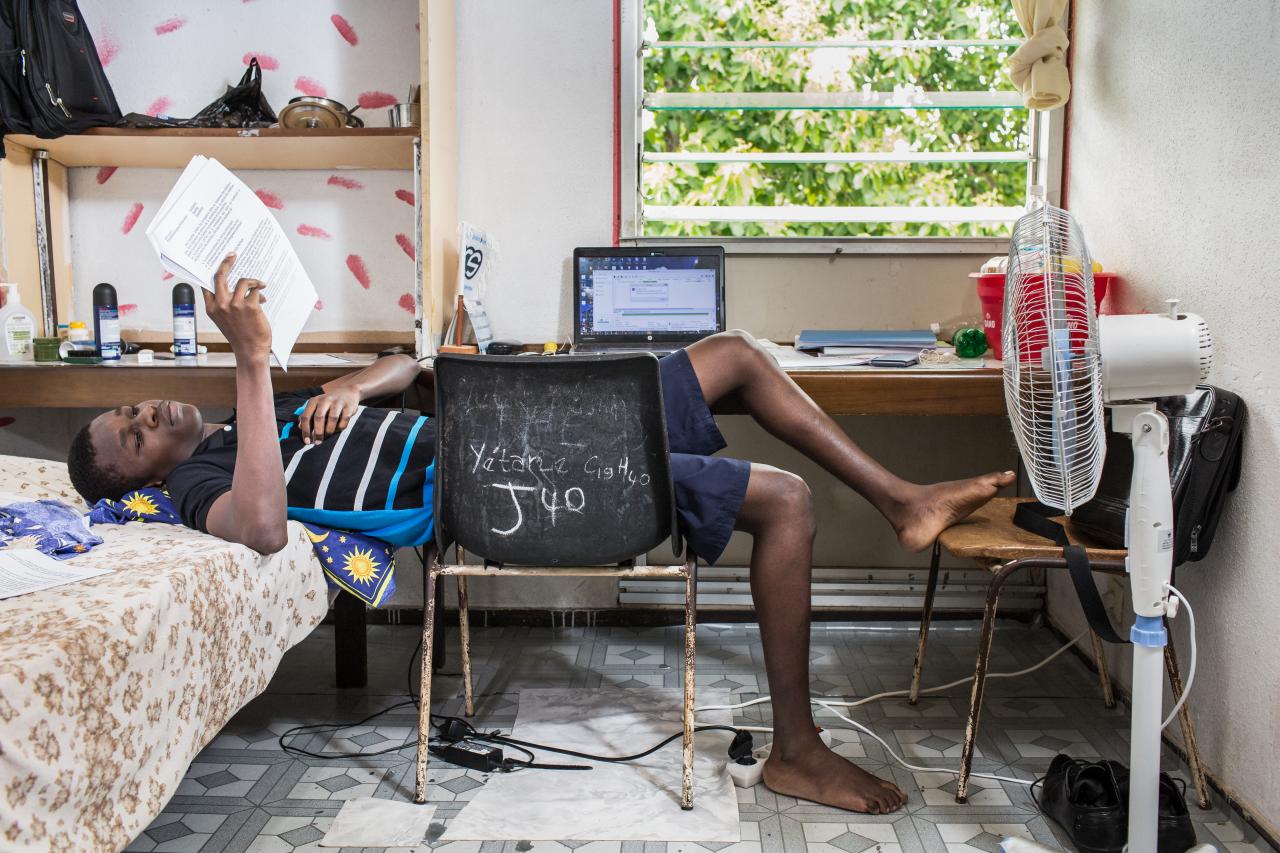
Student Life
Students at Yamoussoukro aren’t cramped – as is the case in the country’s universities. The Félix Houphouët-Boigny national polytechnic has some 3,500 students from 15 countries in Africa. They represent the best graduates in the Ivory Coast, since only 650 are admitted each year out of more than 7,000 applicants.
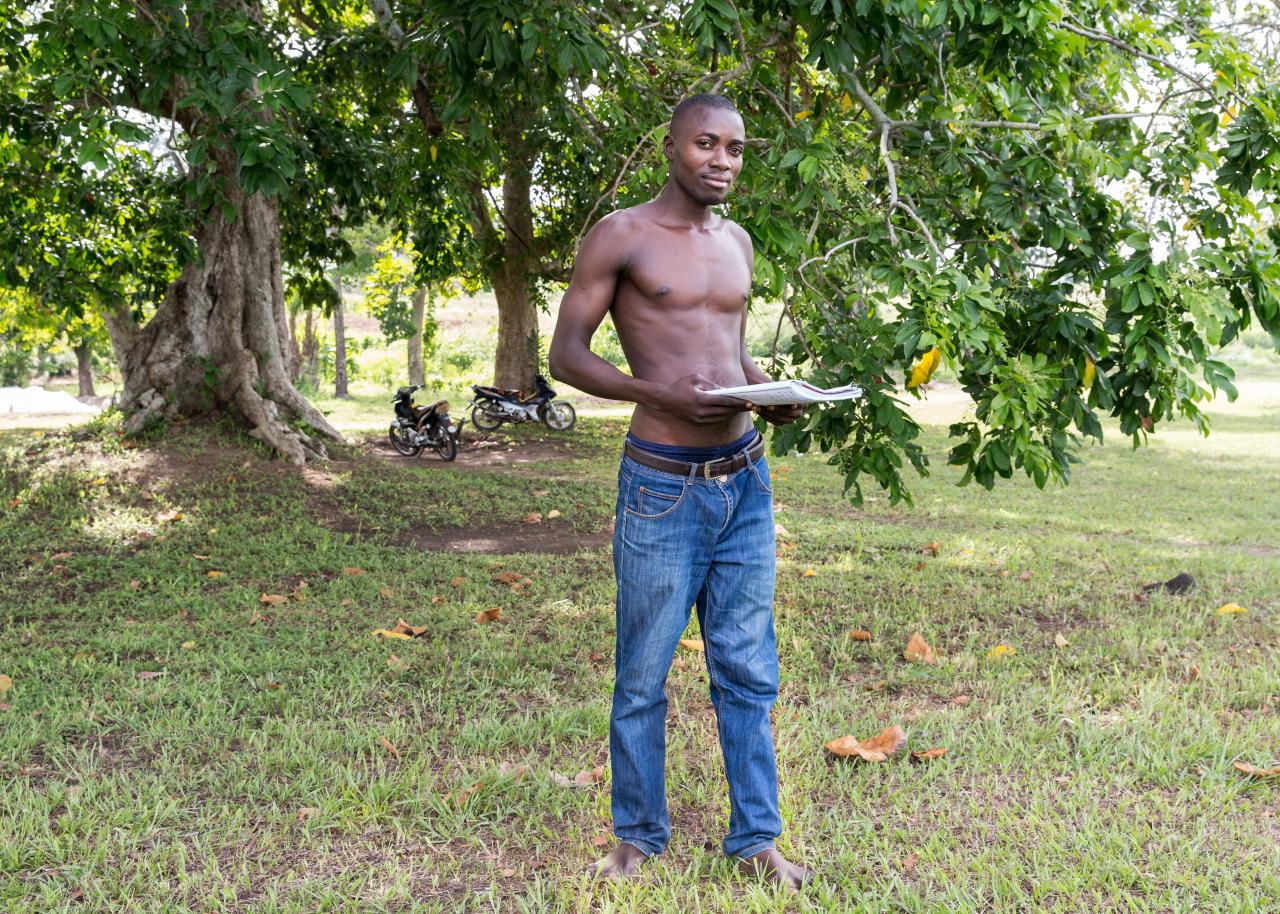
For students at Yamoussoukro INP-HB, internet access is a particularly precious tool, even if, at the moment, the idea of free Wi-Fi on the university campus seems like utopia.
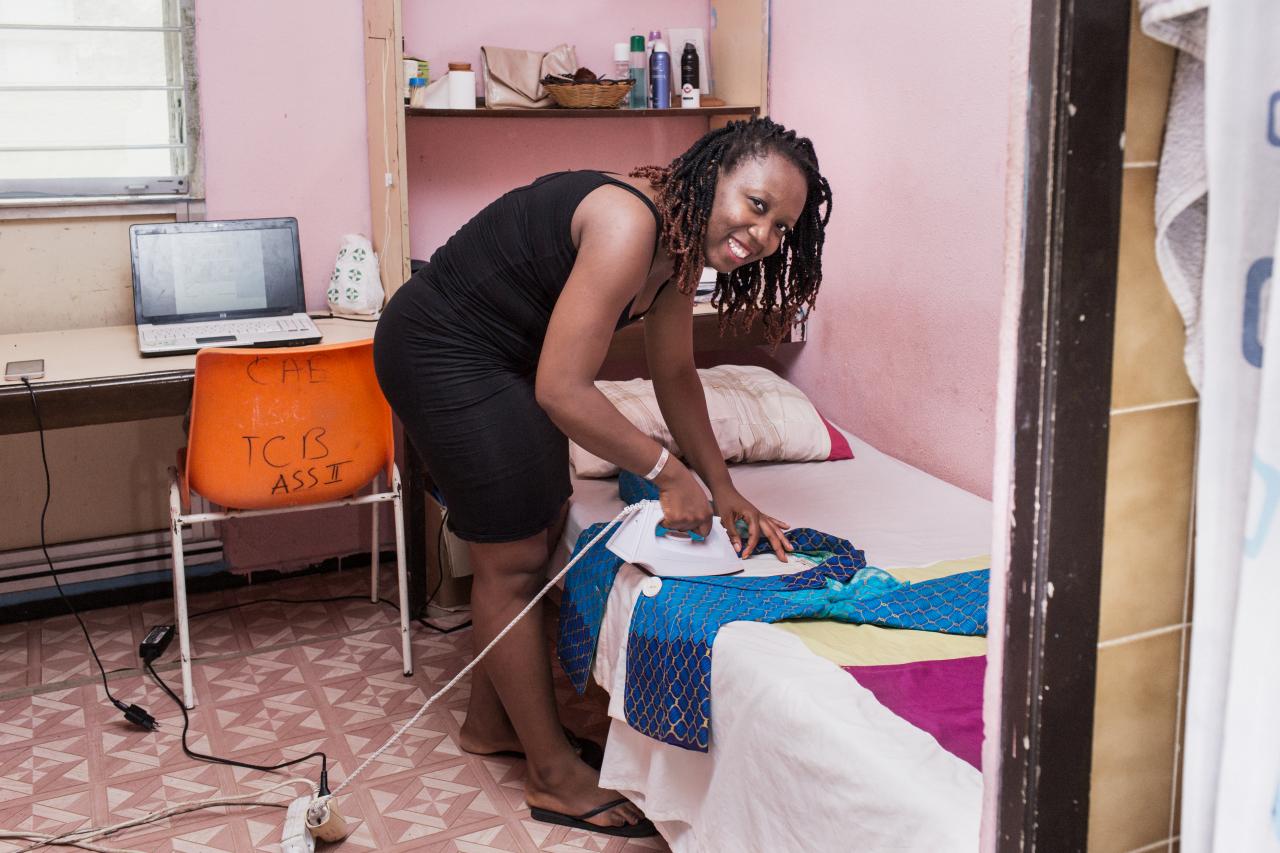
Michaelle Shai tried to take a MOOC, but because she couldn’t afford the internet connection, she was unable to complete the course. “Everyone would be interested in MOOCs if we had access to free, fast internet on campus, because everyone wants to improve their knowledge. But in the current conditions it’s impossible,” says Shai.
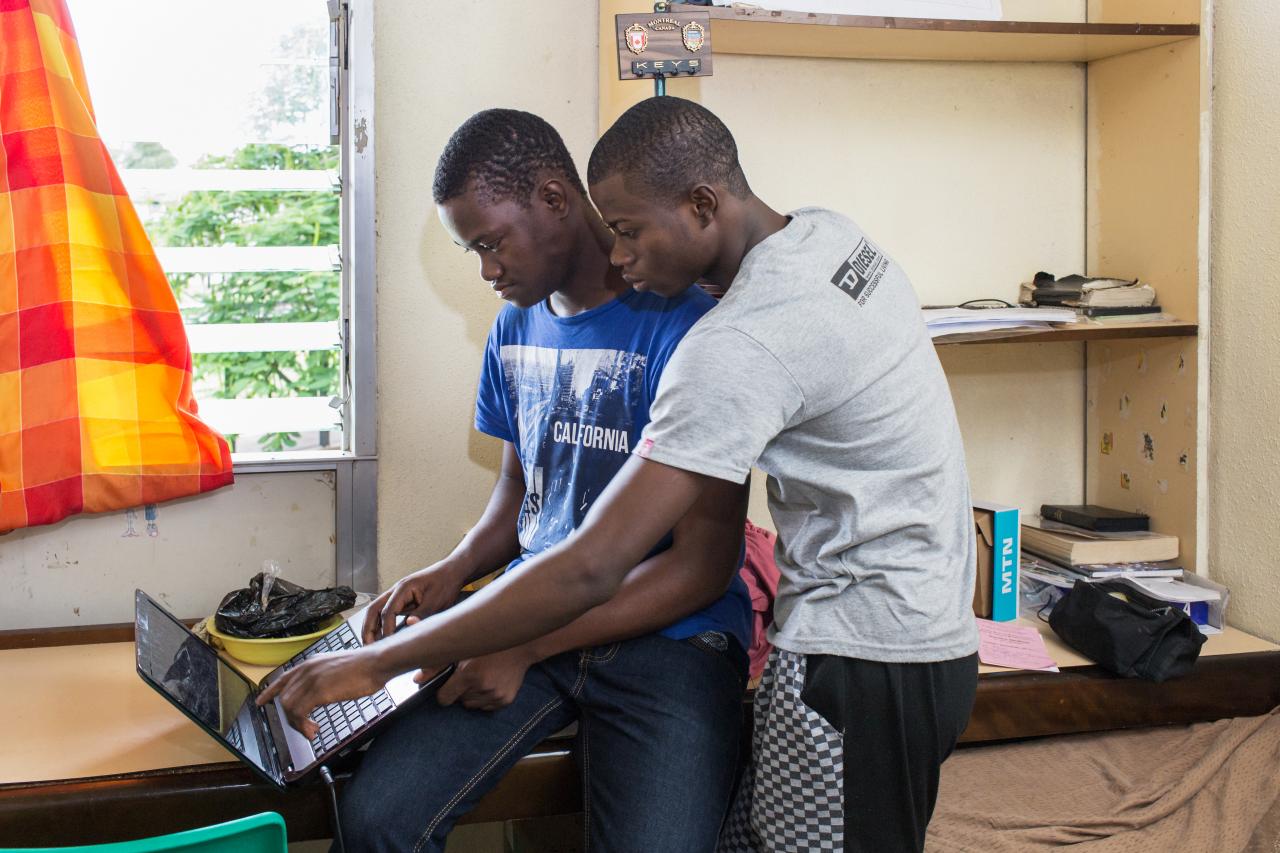
Jordan Romaric Brika proudly points to the most valuable feature in the room: a Wi-Fi box.
“Eight of us bought it together and we share it,” explains Brika from the small room that also boasts a narrow bed, a desk, shower and small refrigerator. It’s a few square metres within the Institute Polytechnique Félix Houphët-Boigny (INP-HB) in the Ivorian capital, Yamoussoukro. From there, Brika can access the same education as his peers in other parts of the world – thanks to the wireless internet connection
“I use the courses to extend my knowledge in certain areas because there are a lot of ideas that we just skim over in class,” he explains, as he taps on the computer’s keyboard to open the internet platform Coursera that is home to several MOOCs. The download takes a few minutes. “Internet is a real problem here,” laments Brika.
While most MOOCs offer a diploma to students who can pay the associated fees, this isn’t an option for Brika. “I don’t have much money and it wouldn’t be a profitable investment for me,” he says.
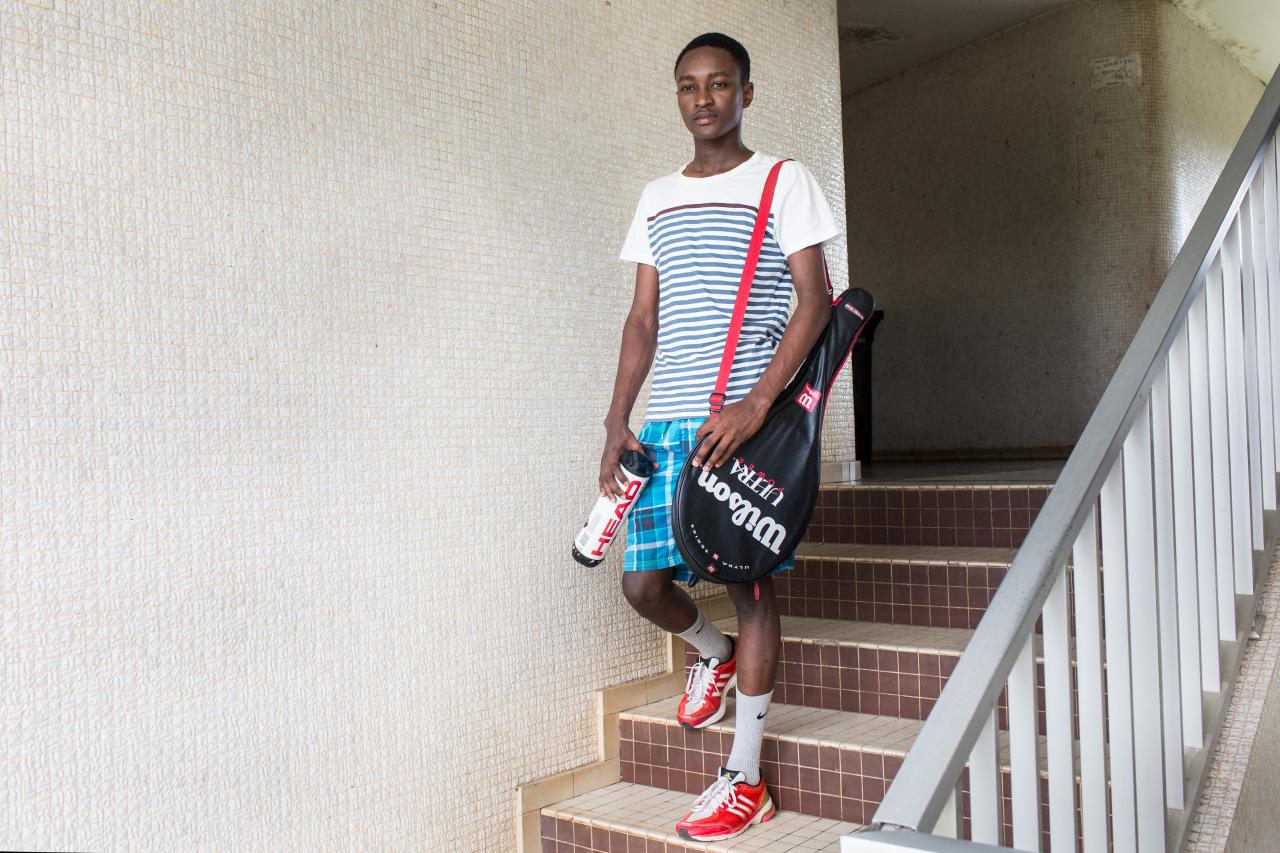
Not so for Moussa Kone Ahmed, an engineering student in logistics and transport who, like Brika, uses most of his free time to follow MOOCs and has already obtained a certificate from a French management school.
“For me, it’s important to have the certificate. I think it gives my CV more weight,” says Ahmed, dressed in neat sports clothes and carrying a tennis racket on his way to the campus recreation centre. It’s a rare moment of relaxation for the young student.
“Most of the time, I get home at 6pm. I eat and then I’m ready to get back to work,” says Ahmed, as he shows us a rechargeable 3G internet connection key that he has in his pocket.
“I had to invest in internet access that allows me to follow the MOOCs within the allotted time, and to hand in the course exercises on schedule. Only the students who have a little bit of money can do it,” he says.
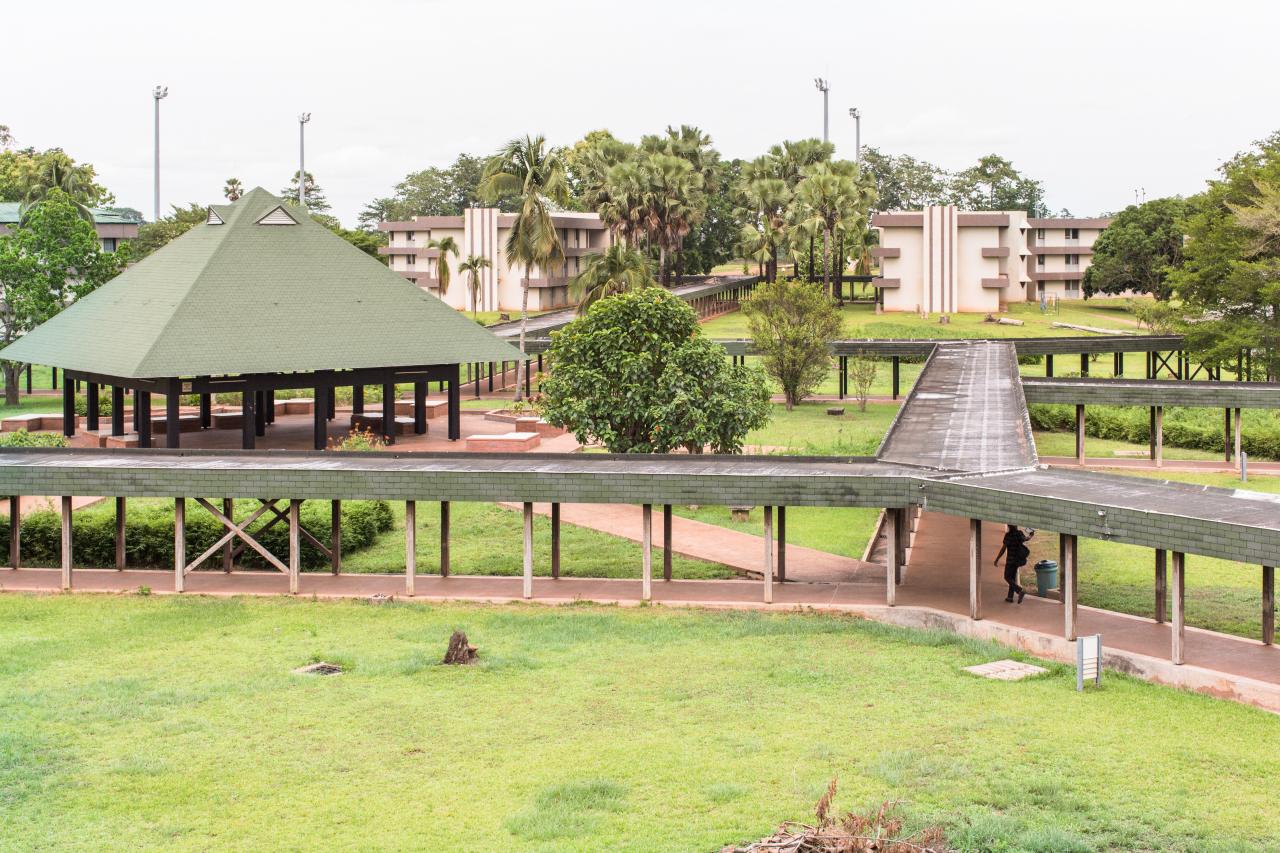
The campus has 32 halls of residence, which comprise more than 3,000 individual bedrooms. The polytechnic stretches over 1,000 hectares, of which only 400 are developed.
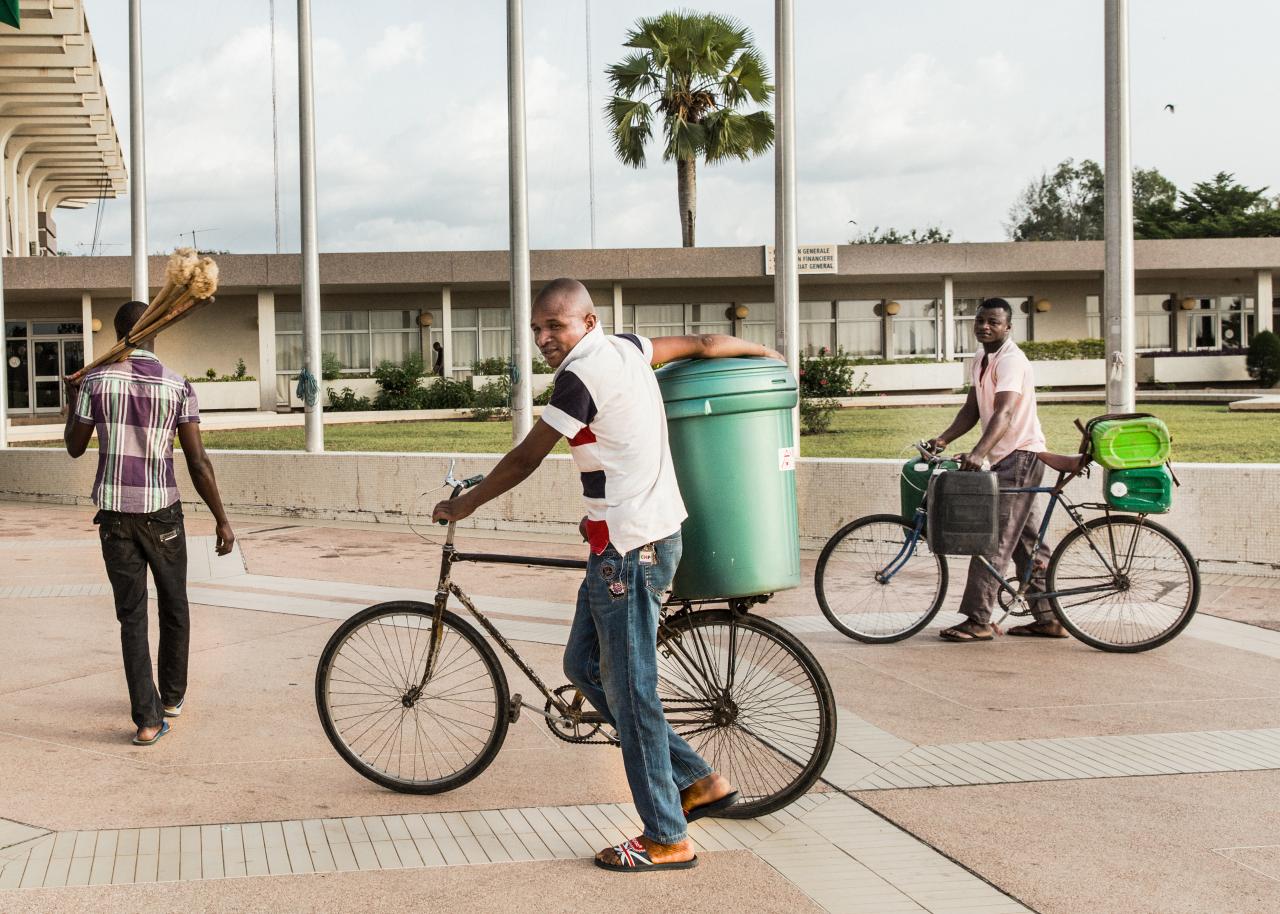
Water cuts are not unusual in the dormitories. These students have had to stock elsewhere.
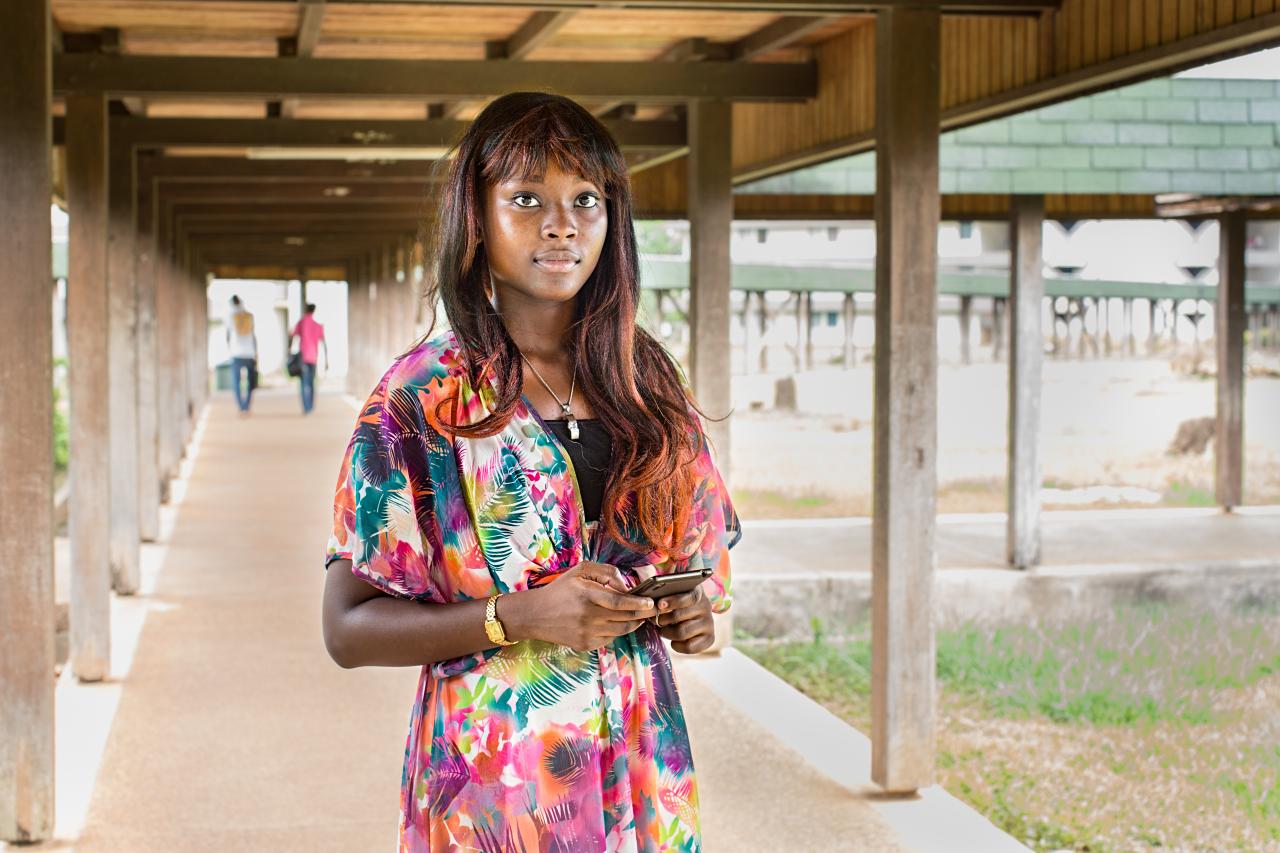
“I'd love to follow a MOOC, but it's too complicated with all the problems with the internet.” Aurore Monda, 18, studying business management.
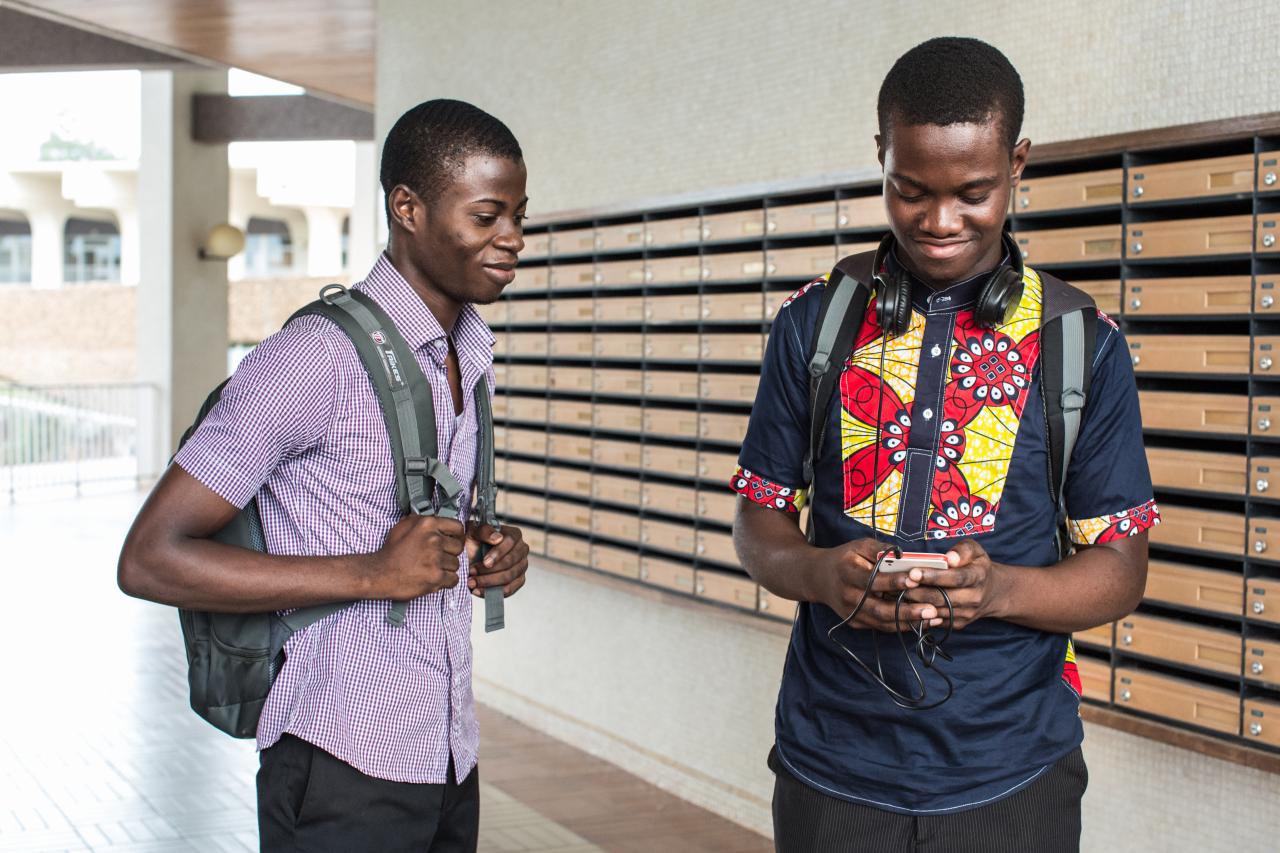
Jordan Romaric Brika and a collegue use a break to watch a course that Jordan has been able to download on his smartphone.
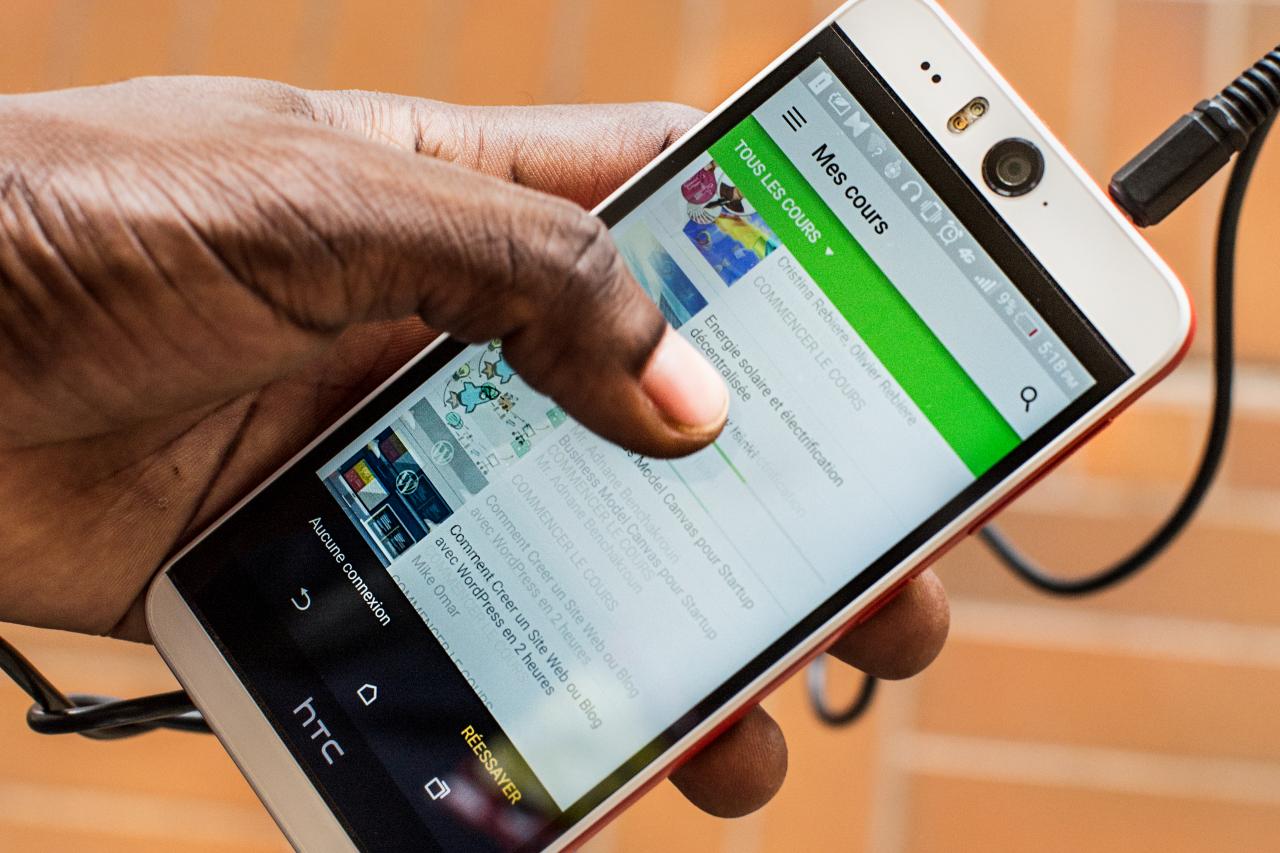
Although the students at Yamoussoukro are priviledged, they still struggle to get a decent internet connection.
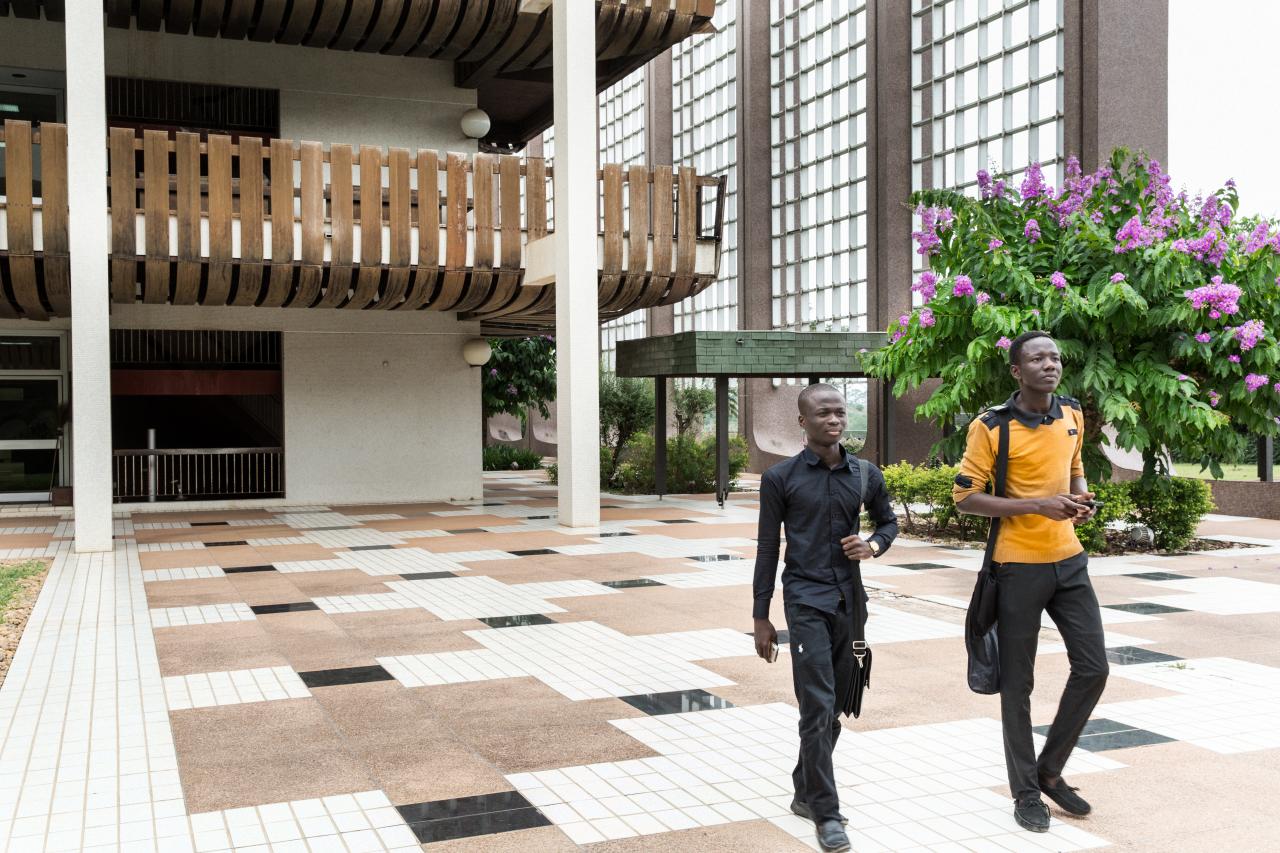
The campus architecture is a matter of national pride.
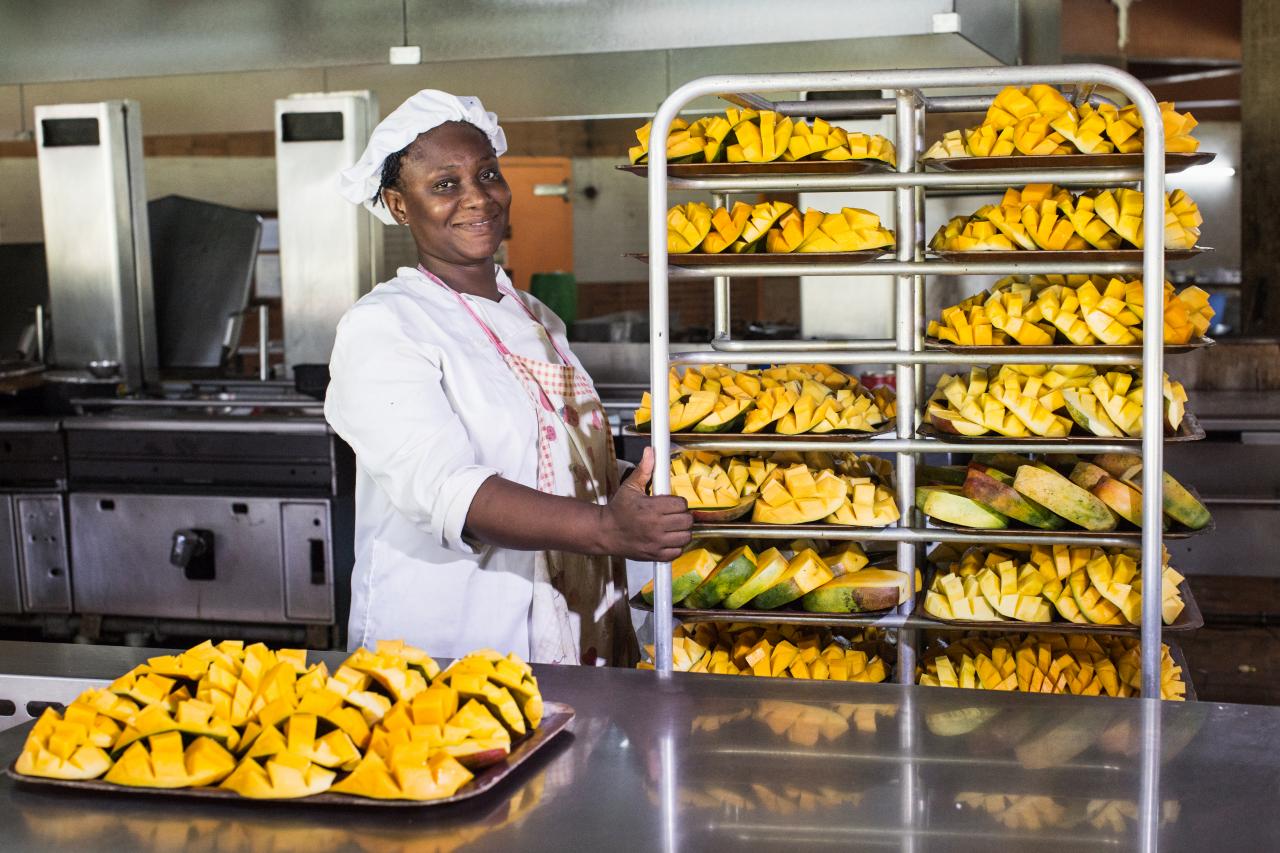
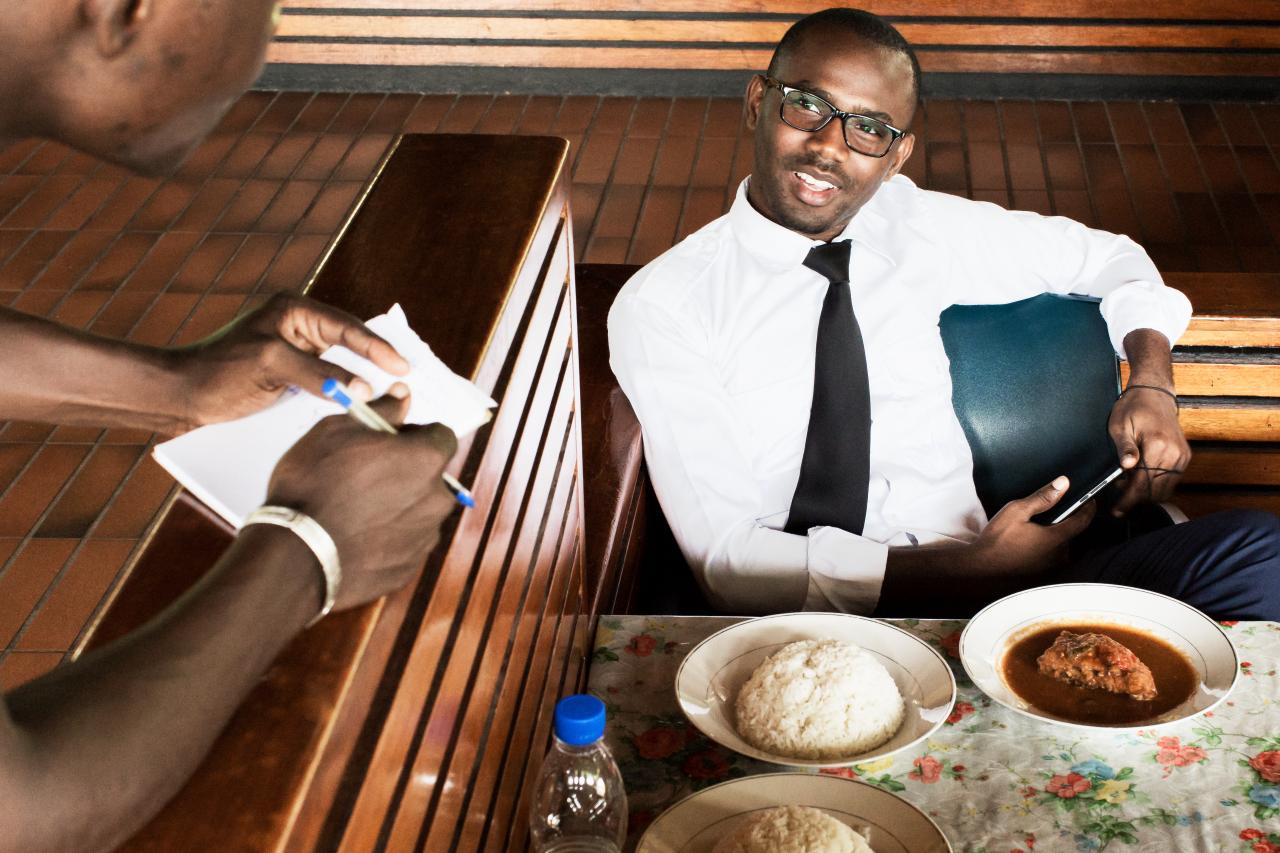
The students in aviation, a department sponsored by Air France, have priviledged access to the modern air-conditioned pavilion that serves as a canteen for the teaching staff,
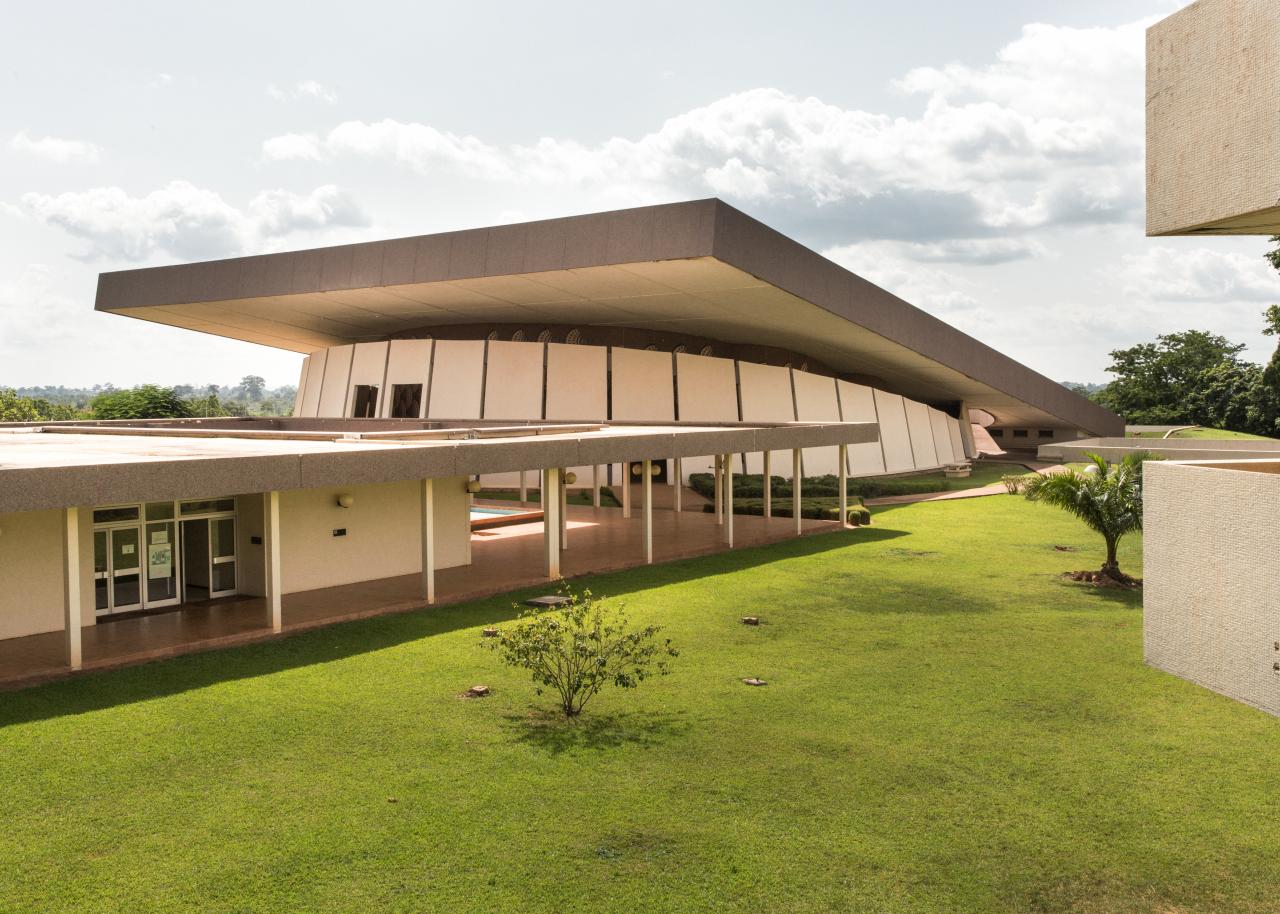
The impressive amphitheatre.
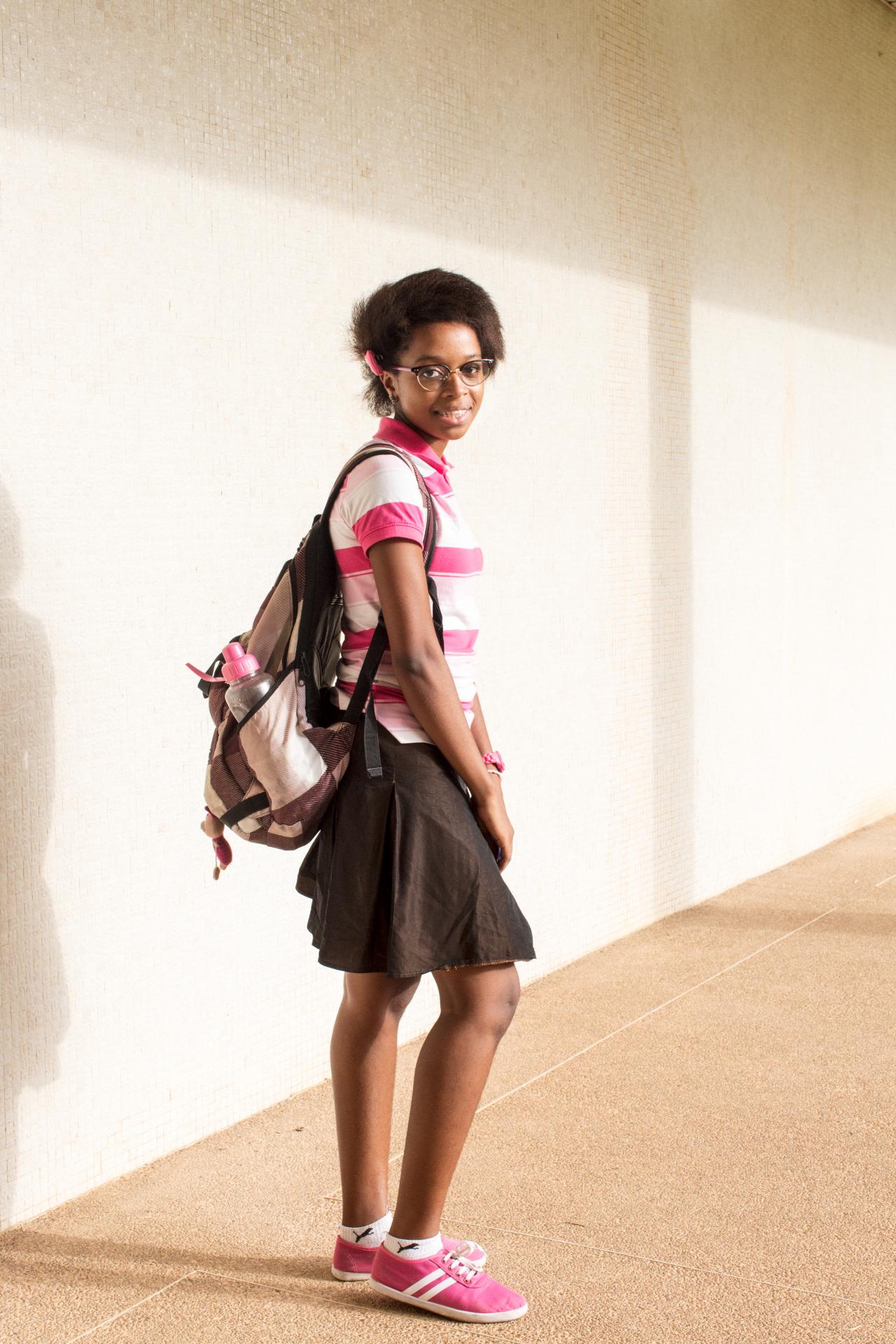
Women make up only a quarter of students at Yamoussoukro.
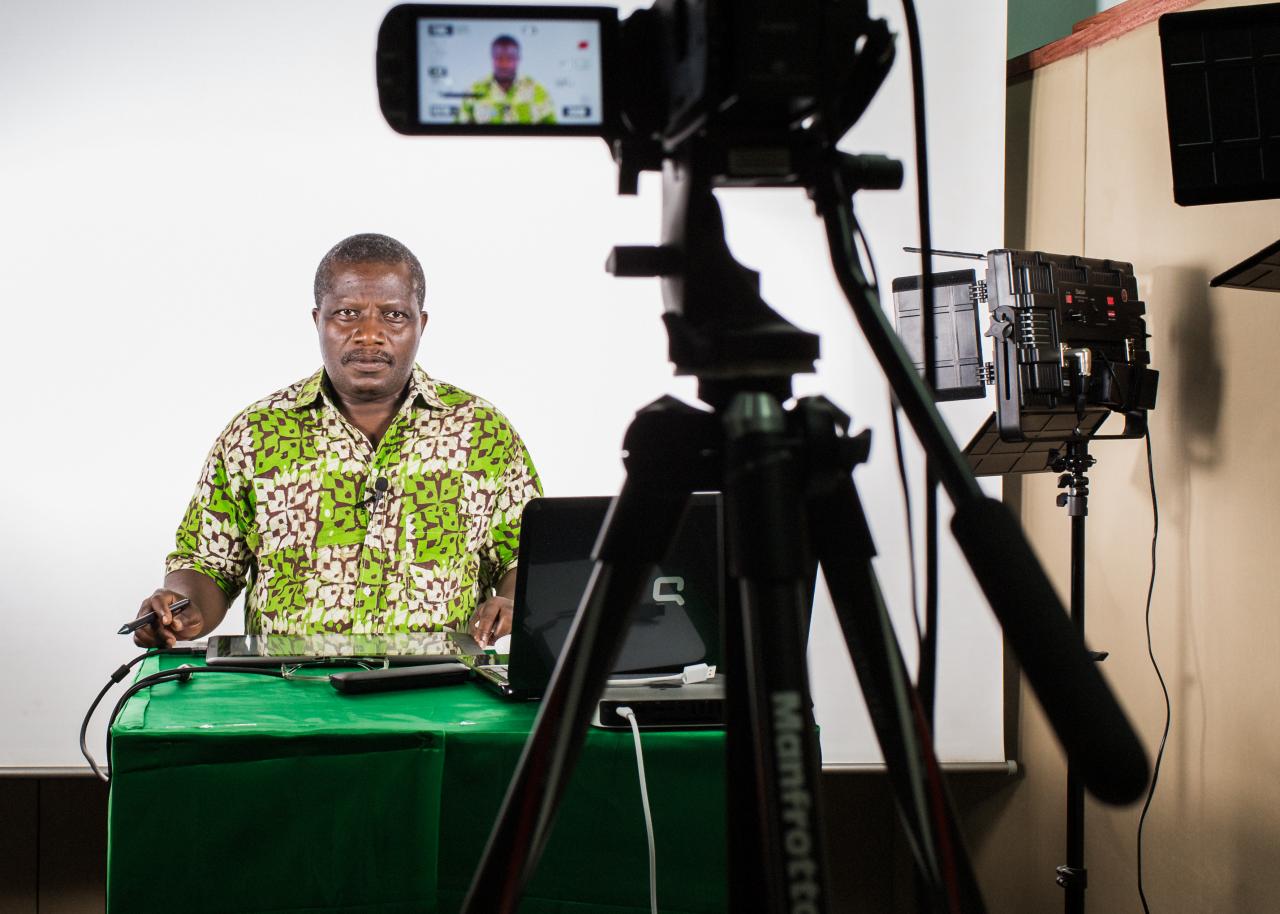
Silence! On air!
Professor Yves Tiecoura is a bit of a star at Yamoussoukro. He has chosen to wear a green and yellow shirt for the filming of the first 100% made-in-Africa MOOC: ‘Signs and LED displays’. He sits facing three projectors and a camera.
Filming, however, is quickly interrupted after Tiecoura yells “Cut!” because the air conditioning is making too much noise. It is turned off for the shoot and the air in the studio quickly becomes heavy. The audio-visual team checks the images that have just been filmed to ensure they meet the quality standards required for the MOOC to be published on the Coursera platform.
The filming of the MOOC is generating a lot of interest among Ivorian educators and is also a test case that is being closely watched in Switzerland at the EPFL, which hopes to transfer the technical and educational tools to create and use MOOCs to its African partners.
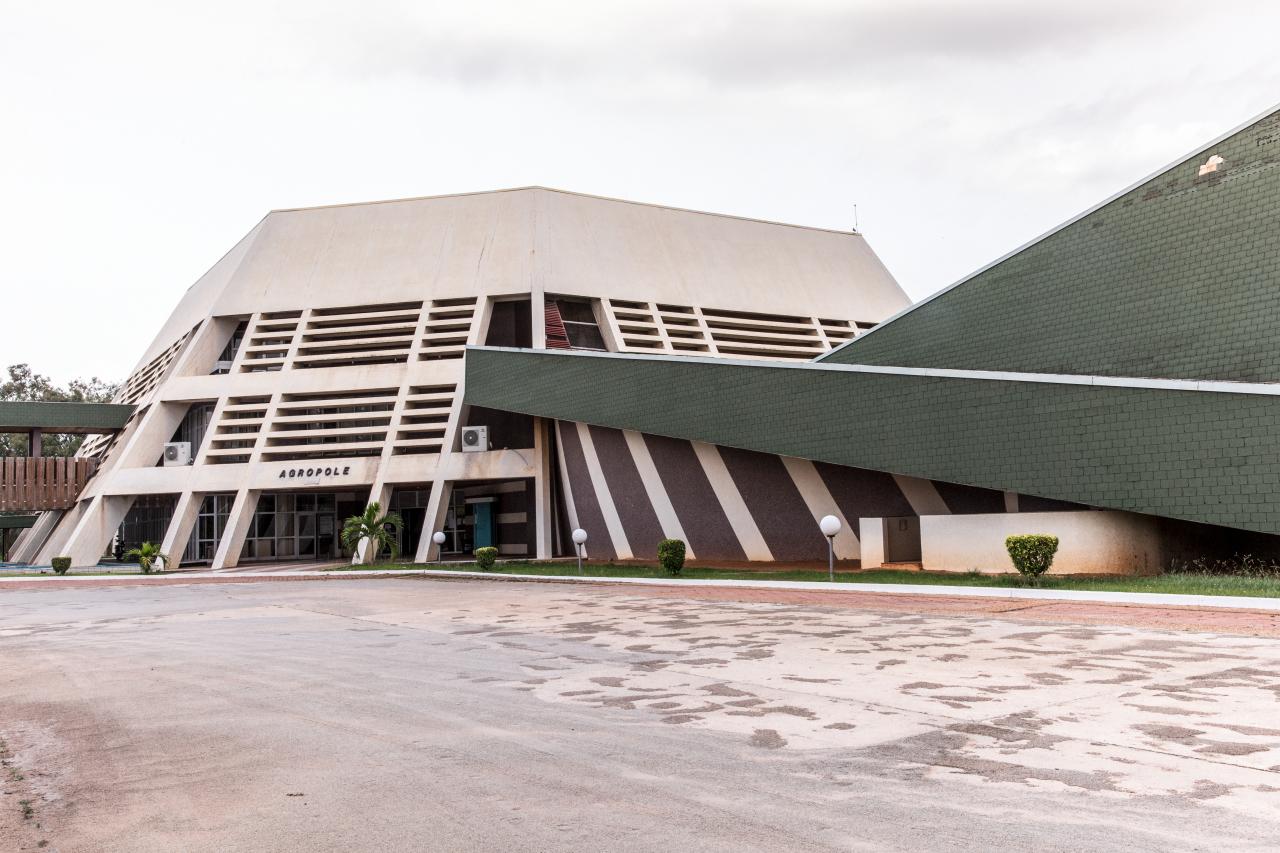
A new centre for recording MOOCs has been set up in this buiding.
It is no secret that crowded auditoriums, overworked professors too busy to update teachings, or massive course loads that leave little time for interaction is the daily lot for universities in Ivory Coast and Africa in general. For the EPFL, MOOCs represent a solution to some of the problems caused by the so-called ‘massification of higher education’.
The Swiss school’s strategy is to establish three techno-educational centres that would enable the production of MOOCs. Already operational, the first centre is in Yamoussoukro, while centres in Dakar, Senegal, and Yaoundé, Cameroon, are in the pipeline. Some dozen professors from each university will be trained to integrate existing MOOCs into courses.
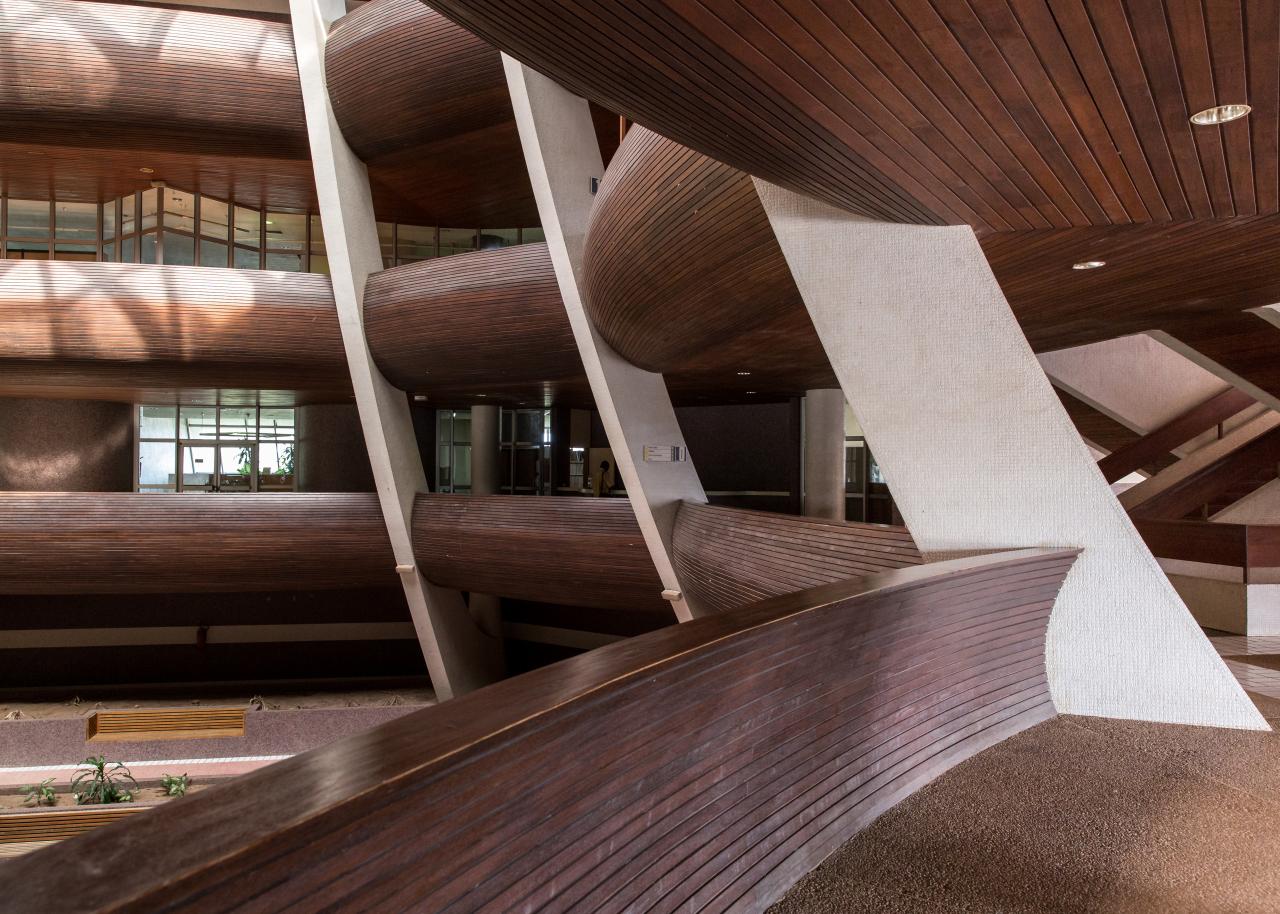
However, despite the enthusiasm for MOOCs, many educators fret that videos will replace teachers.
“We try to reassure them that that is not the aim at all,” says Noukakis. “They simply need to rediscover the added value of not delivering a course to an auditorium of 1,500 people.”
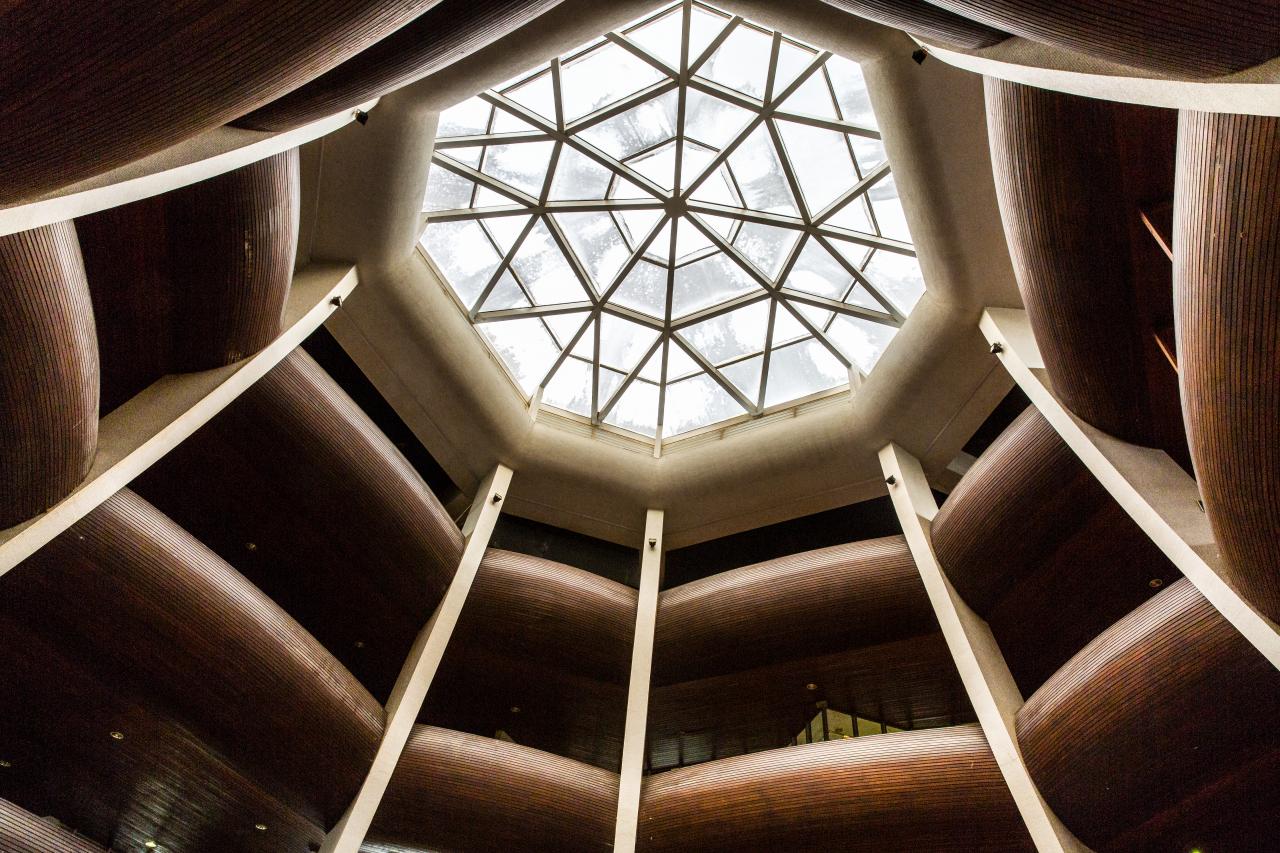
The polytechnic has three recording studios, one of which is at the top of this building.
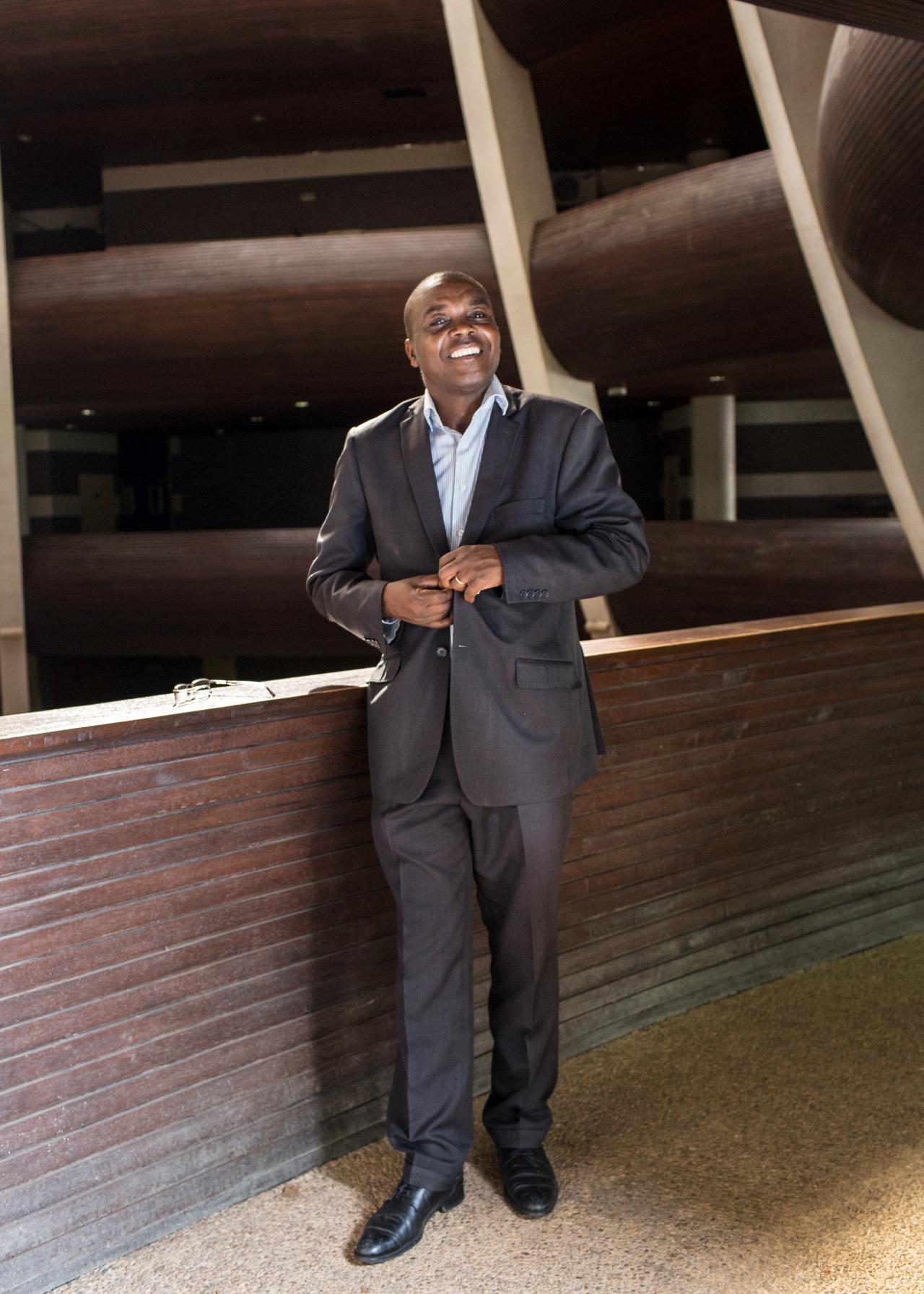
Professor Benjamin Yao, Head of the INP-HB MOOCs programme, welcomes us by showing us a Wi-Fi box.
“I had to buy it myself so that my doctorate students can follow the MOOCs,” he says.
Yao, who is also director of the Polytechnic Graduate School, explains that his students can now follow specific courses online that are not available at Yamoussoukro.
“For me, the MOOCs are the blessed bread,” he says, adding however, that limited internet access threatens to destroy the efforts of his team to integrate MOOCs into courses. Yao is “outraged” that he never receives the connection speed for which he pays. “It borders on fraud! And I don’t understand why in a poor country like ours internet is so expensive.”
Yao estimates the cost of a one-month subscription is equal to around CHF40 ($41), a little bit less than half of the minimum wage in Ivory Coast (CFA60,000 / CHF99).
“The internet problems are an enormous obstruction which keep us in our position of under-development. If young people had access to these tools, perhaps they would not drown themselves by getting on boats and trying to get to Europe,” says Yao.
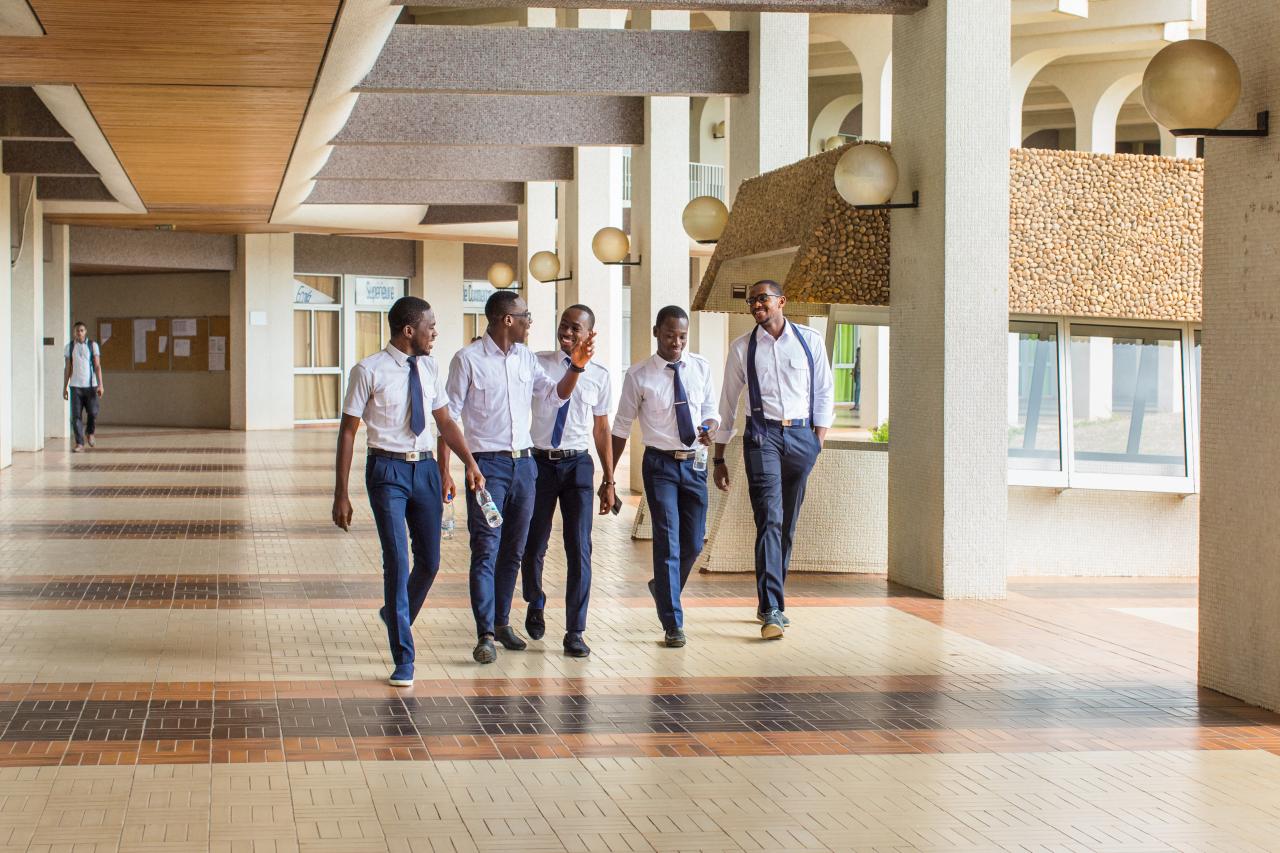
Next generation of pilots.
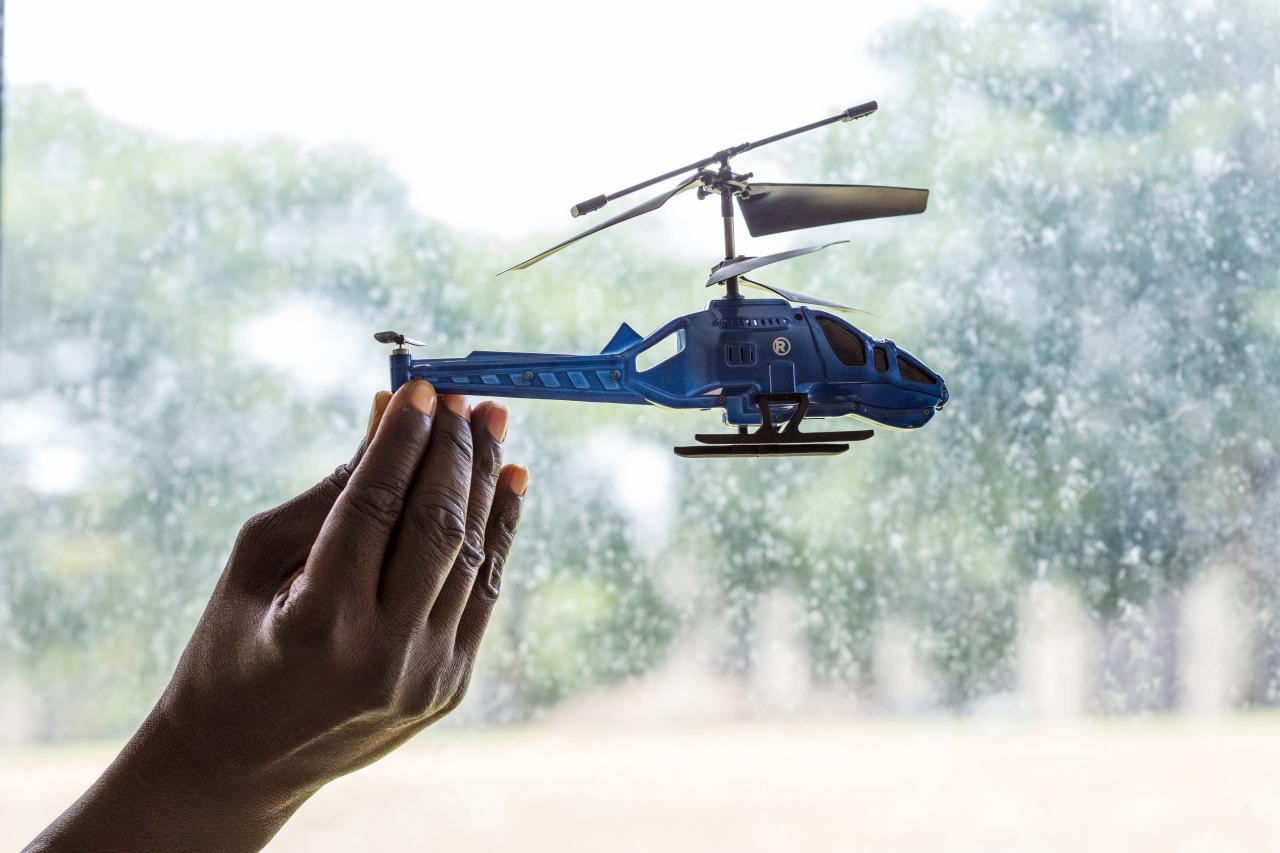
Certain MOOCS, despite sometimes having technical names, can have highly practical implications. That's the case for the course called "Understanding microcontrollers", given by Pierre-Yves Rochat from EPFL and Jean-Daniel Nicoud. It is very popular among students from French-speaking Africa.
The course has given students ideas of creating their own models.
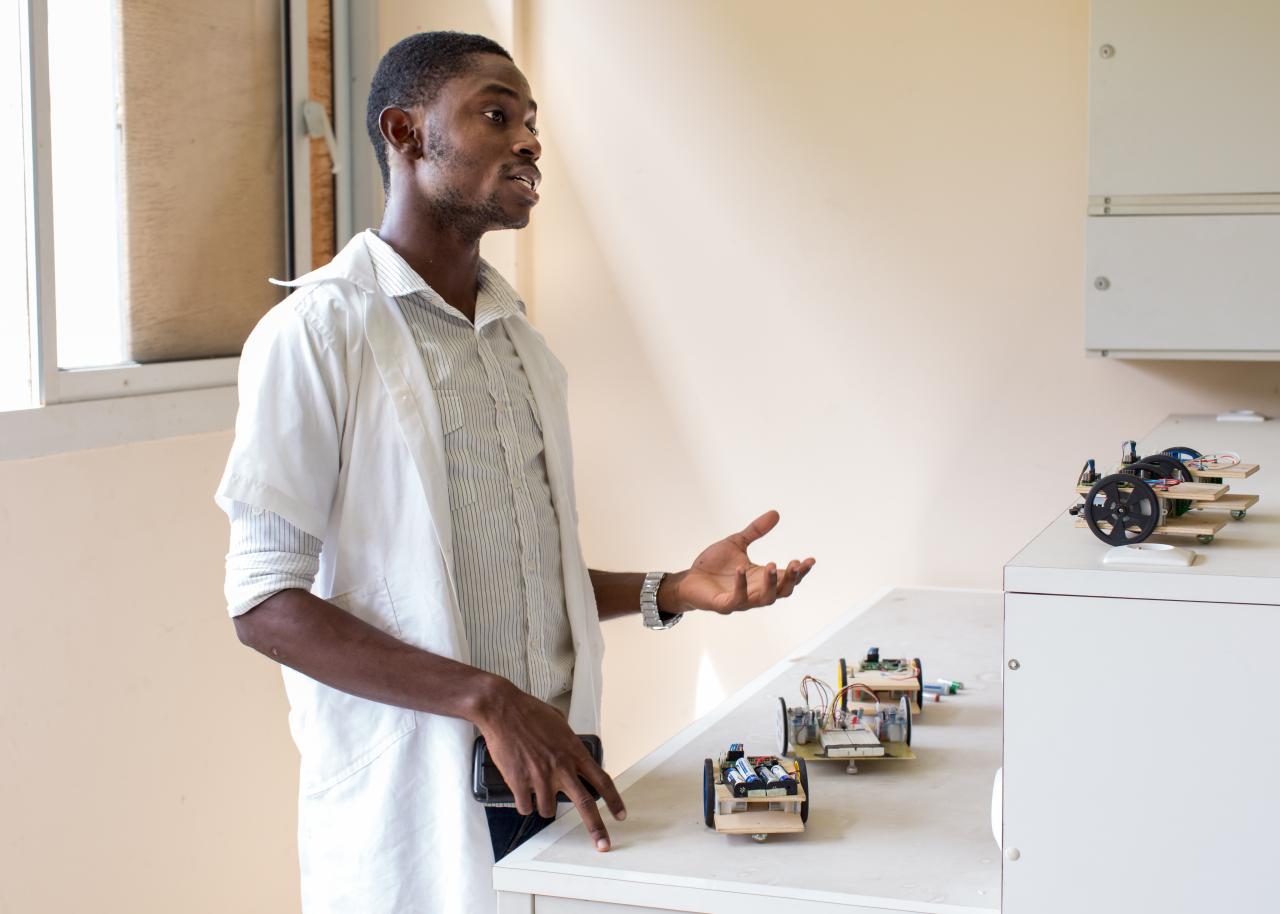
After watching the videos for the "Understanding microcontrollers" MOOC, students regroup to form a robotronics club.
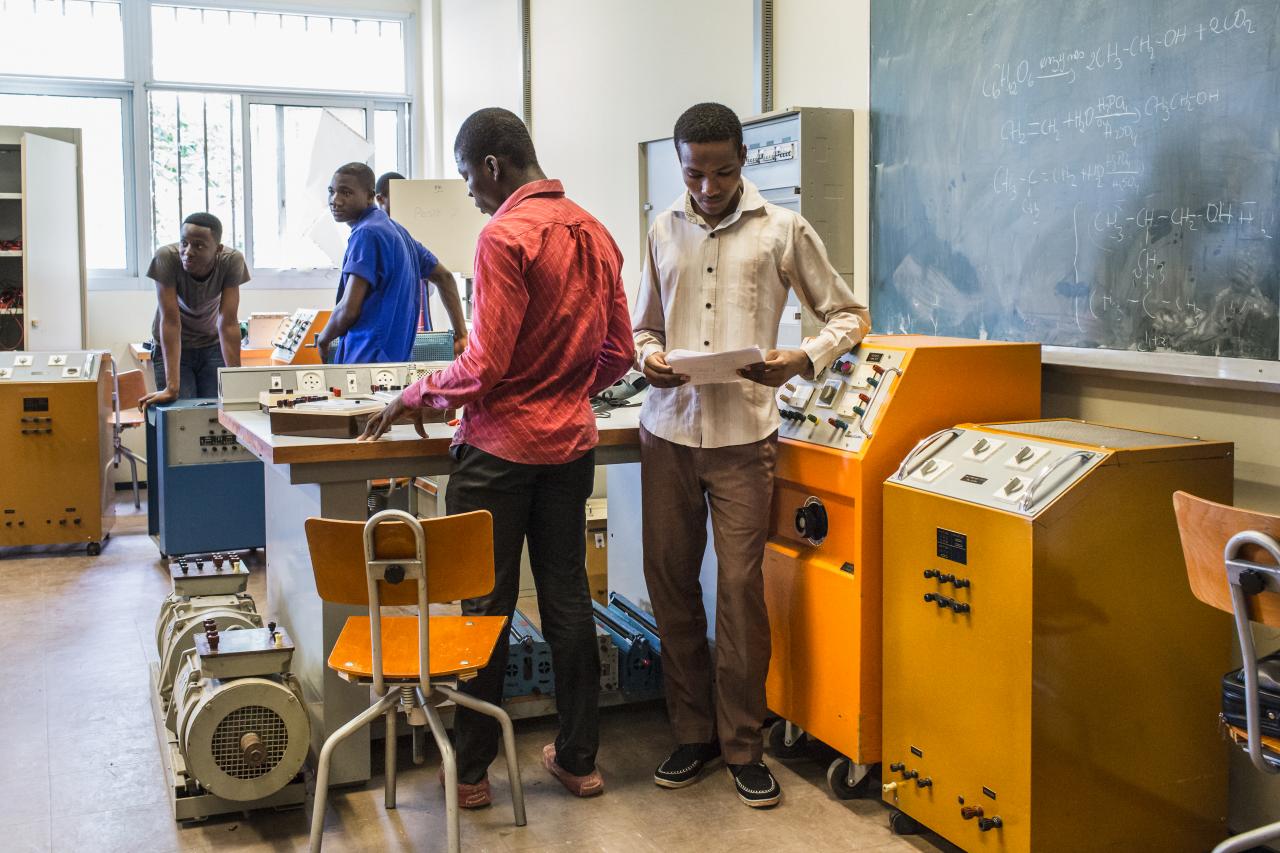
Students train what they have learned.
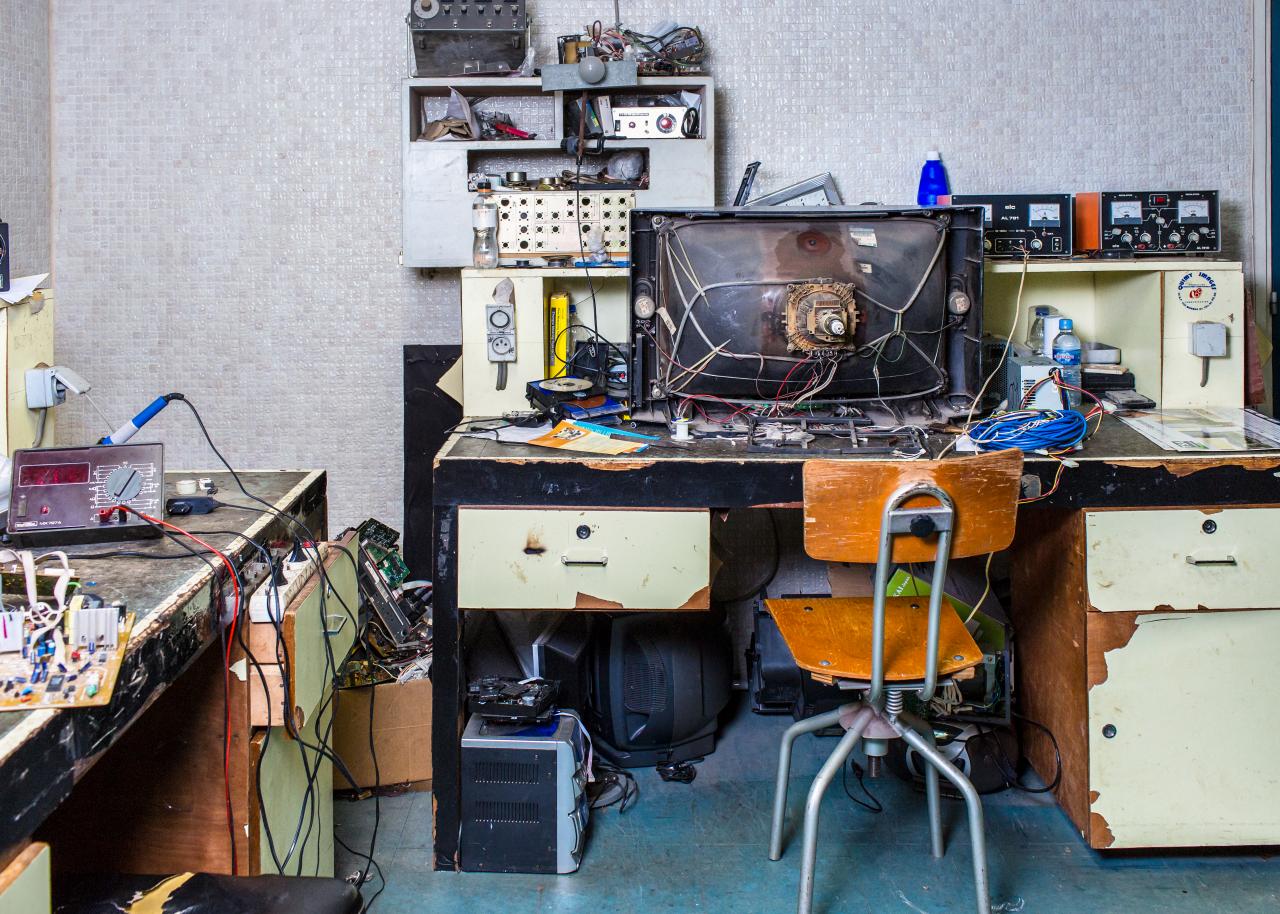
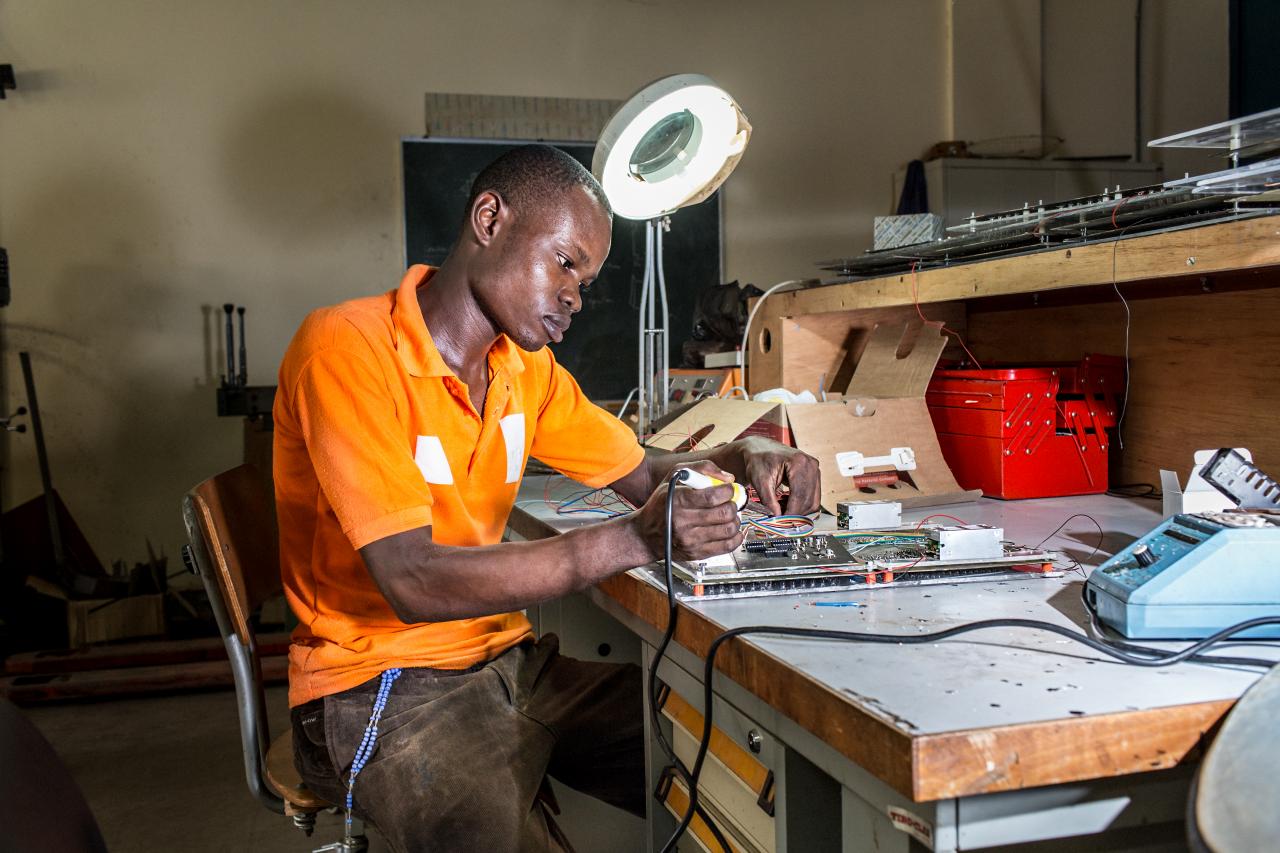
Trainee Jean-Marie Omele at work. In the microcontroller course, students learn how LEDs are build for road and traffic applications, for example.
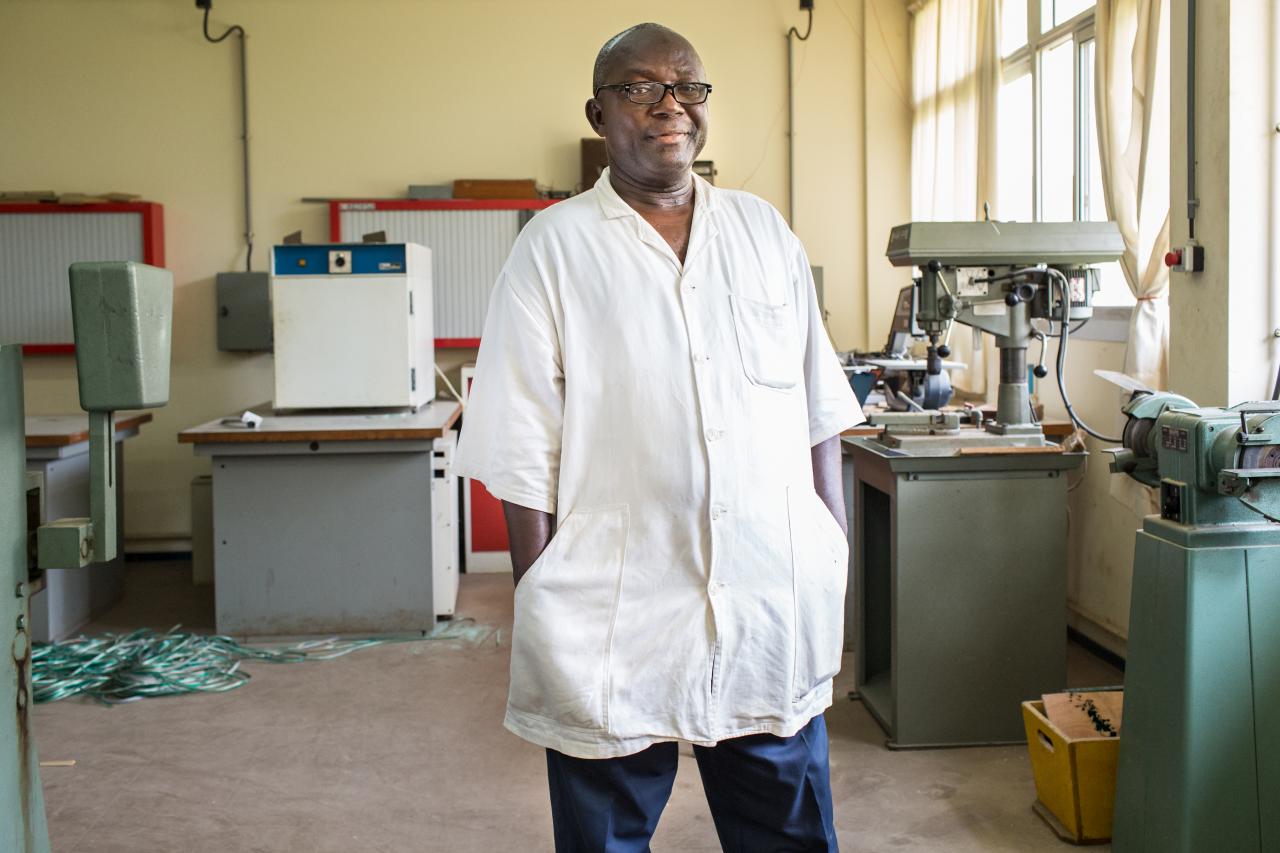
“We hope to get the mandate to replace the city's traffic lights,” explains technician Zakpa Attebi.
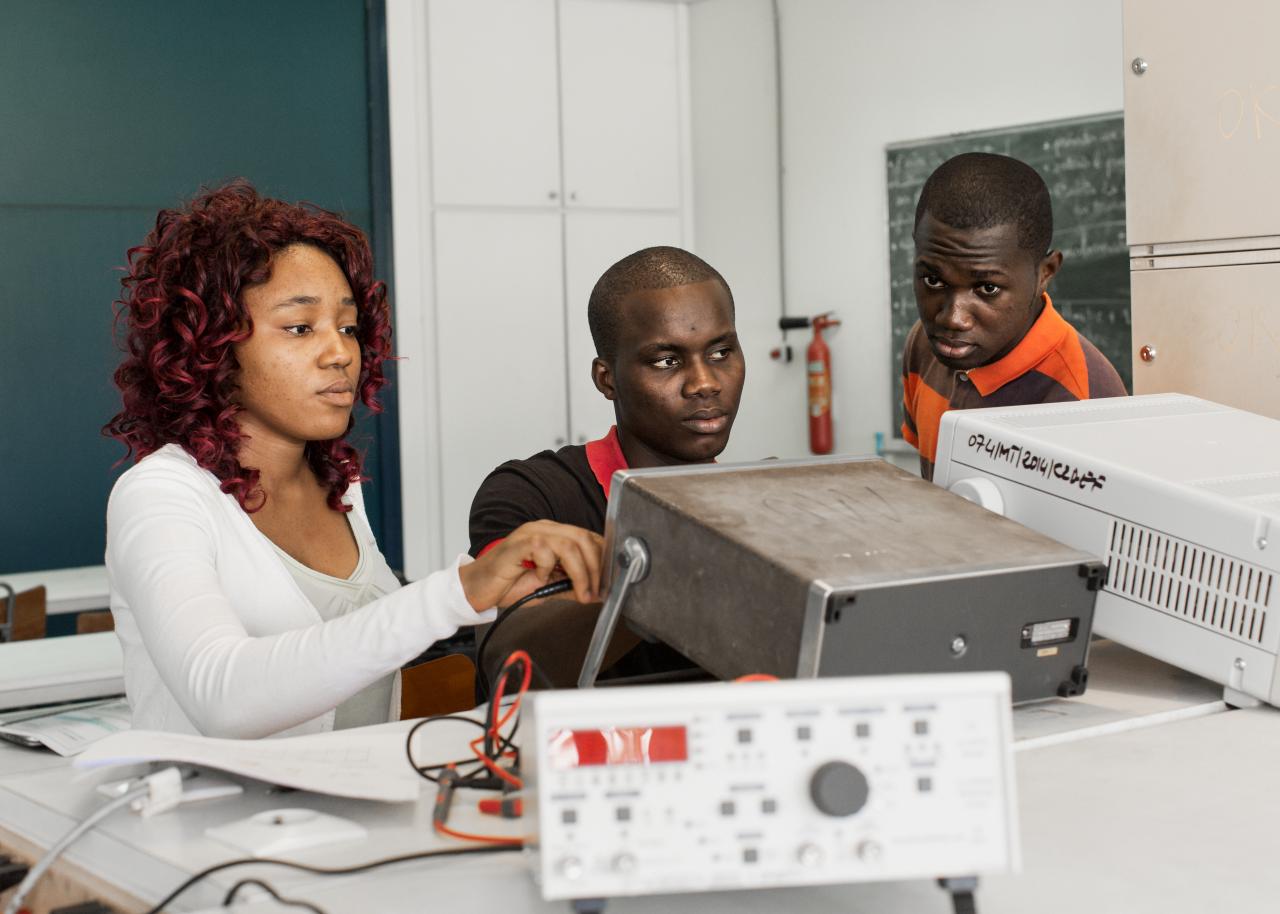
In the practical training room for electronics there isn't a computer.
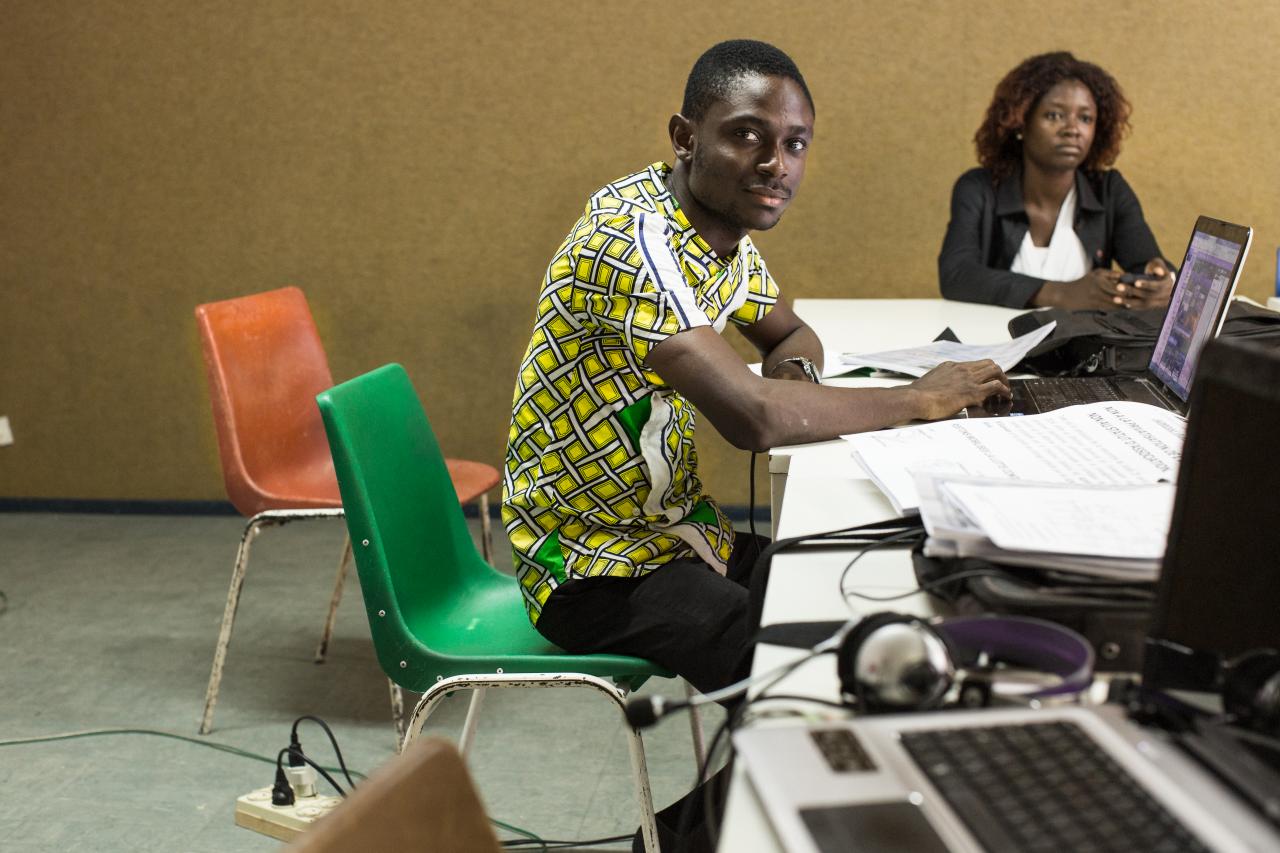
Sébastien Ali Kouame Bile, president of the robotics club, records short videos himself to explain to fellow students what they are learning on the course.
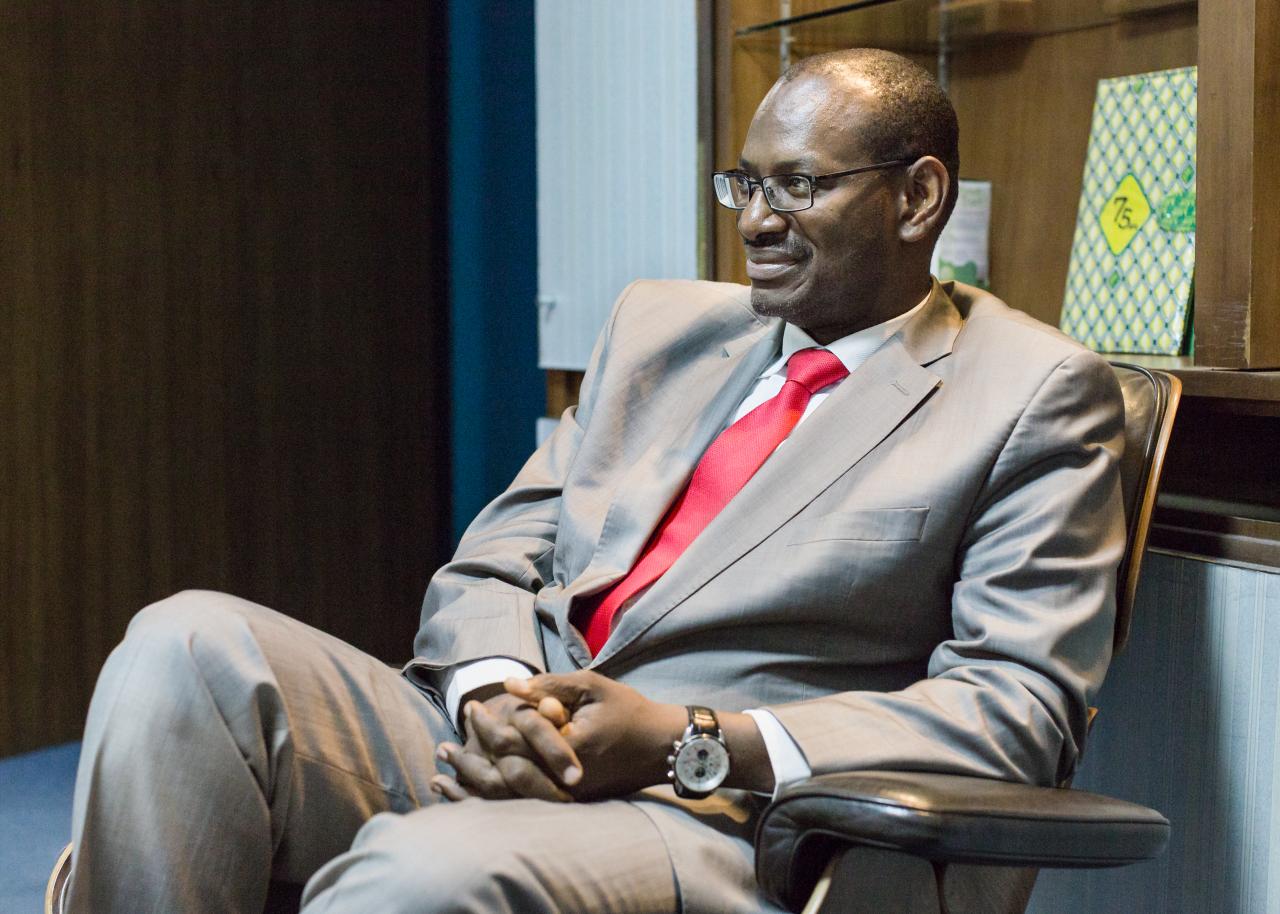
How much time does it take to download a 4GB film in high definition?
In Switzerland 4m35s, in Ivory Coast 28m27s.
The university direction has appealed to Ivory Coast’s budget minister to try to find a solution for the internet problem. “He told us he would use all his weight to influence the operators,” says Moustapha K. Sangare, deputy general director.
While waiting for such a digital revolution, the INP-HB, with the help of the EPFL, has established a network in the school which allows students to access the course videos through a local server. The EPFL has also installed a satellite antenna, which should enable students to have internet access dedicated solely to MOOCs, and especially for submitting assignments or asking questions on the discussion forums.
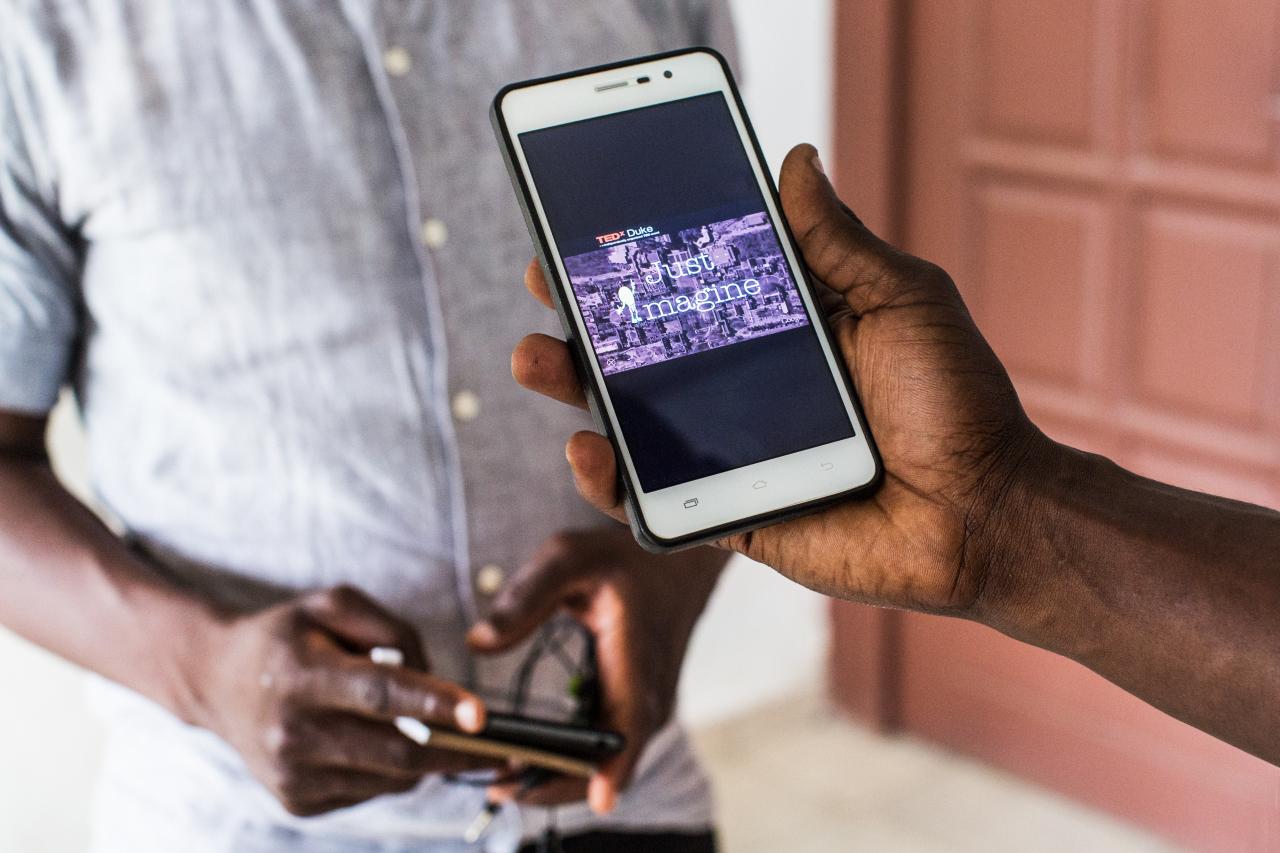
At Abidjan, hundreds of teachers have learned how to create MOOCs, but nothing has really happened since, because they have neither the materials nor the access to the internet that would enable them to put courses online,” says Kpon. He believes in the potential of MOOCs as long as they are accessible to students.
“Knowledge is only valuable when it is shared,” points out Kpon.